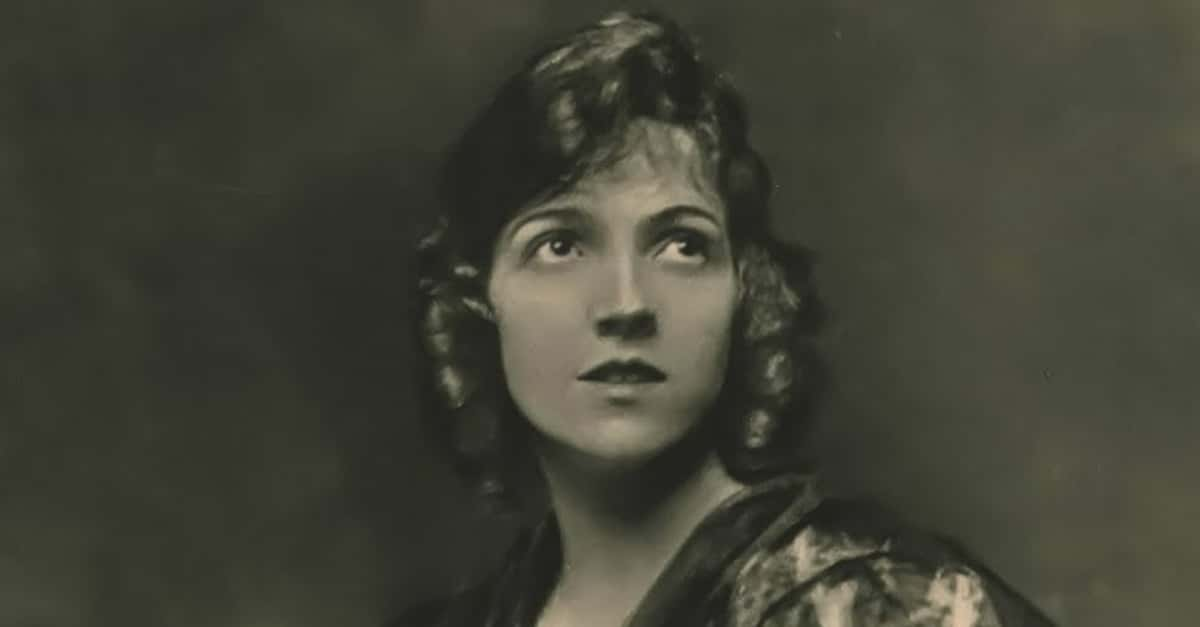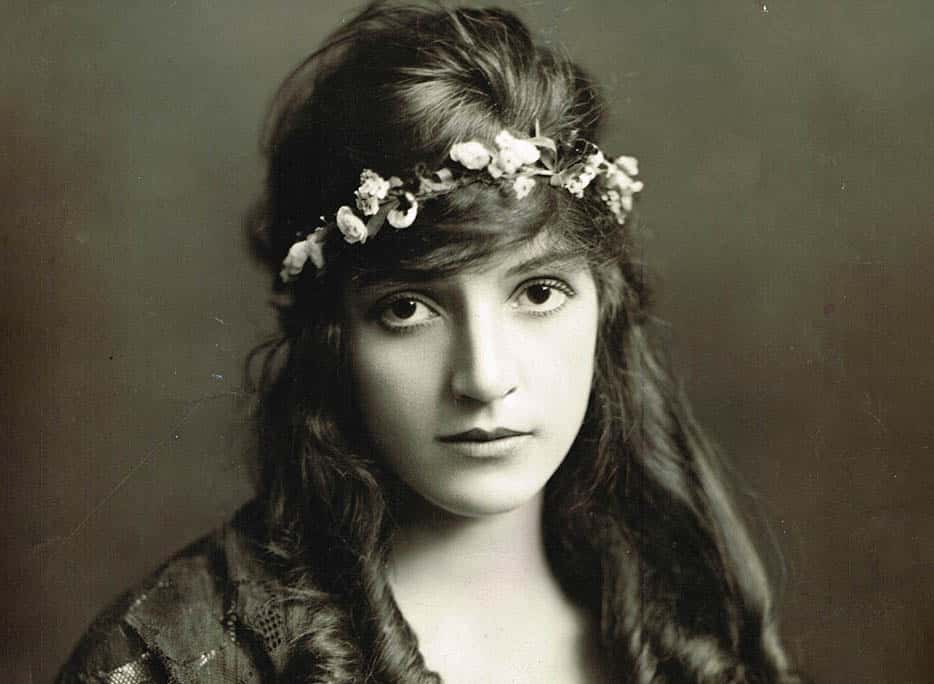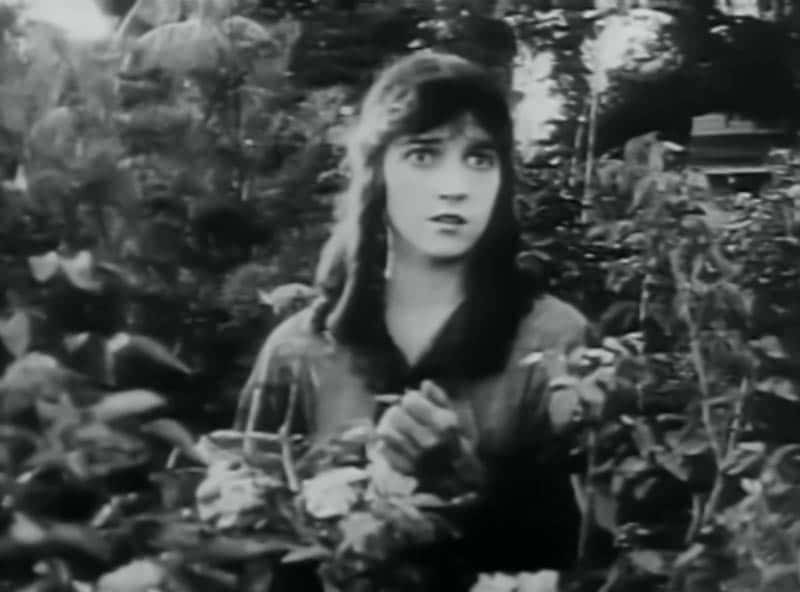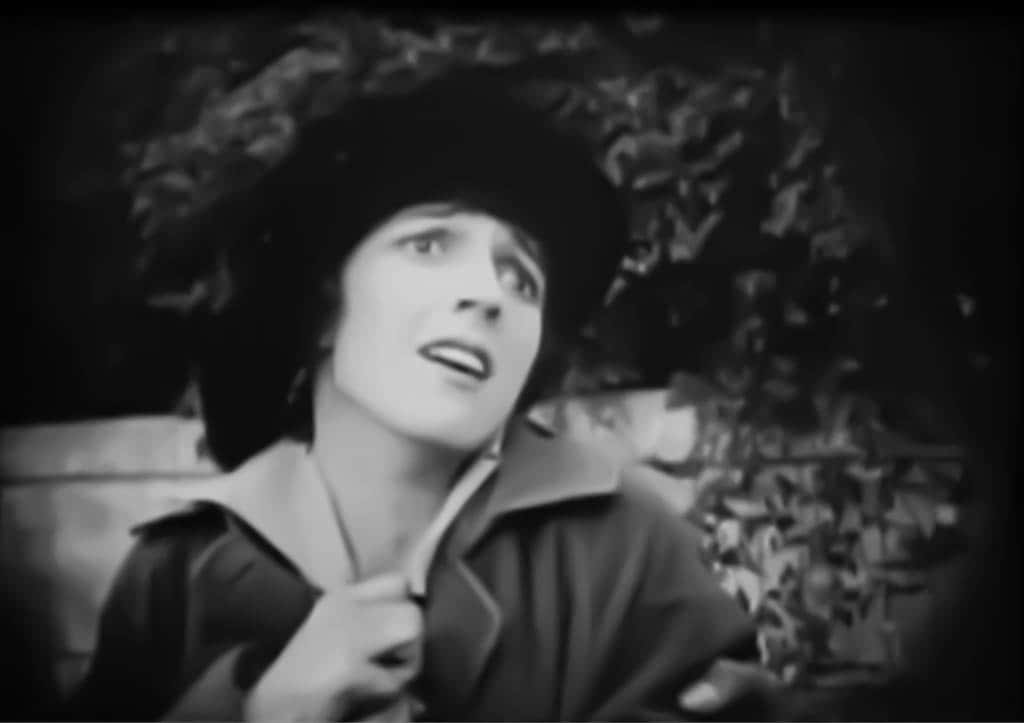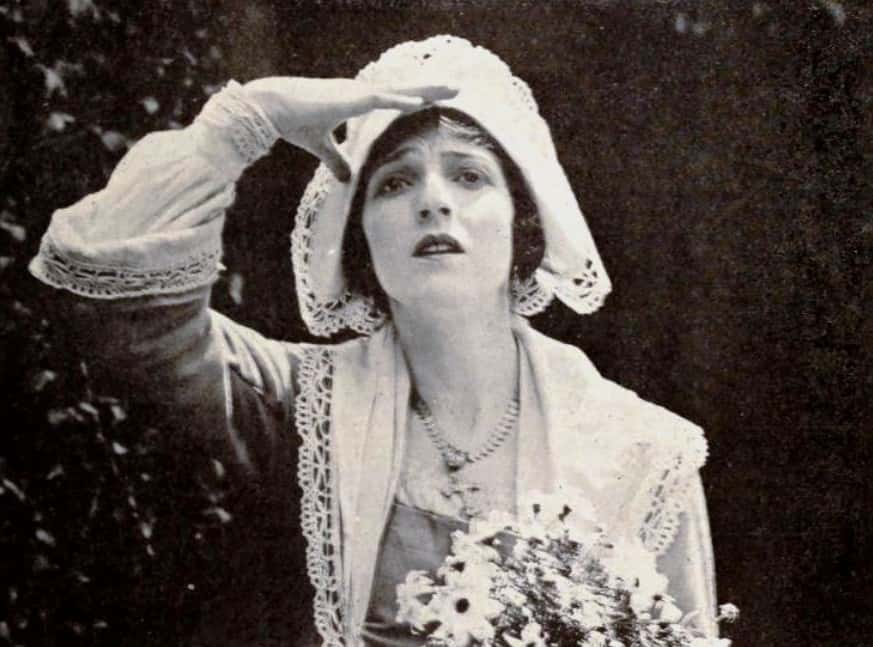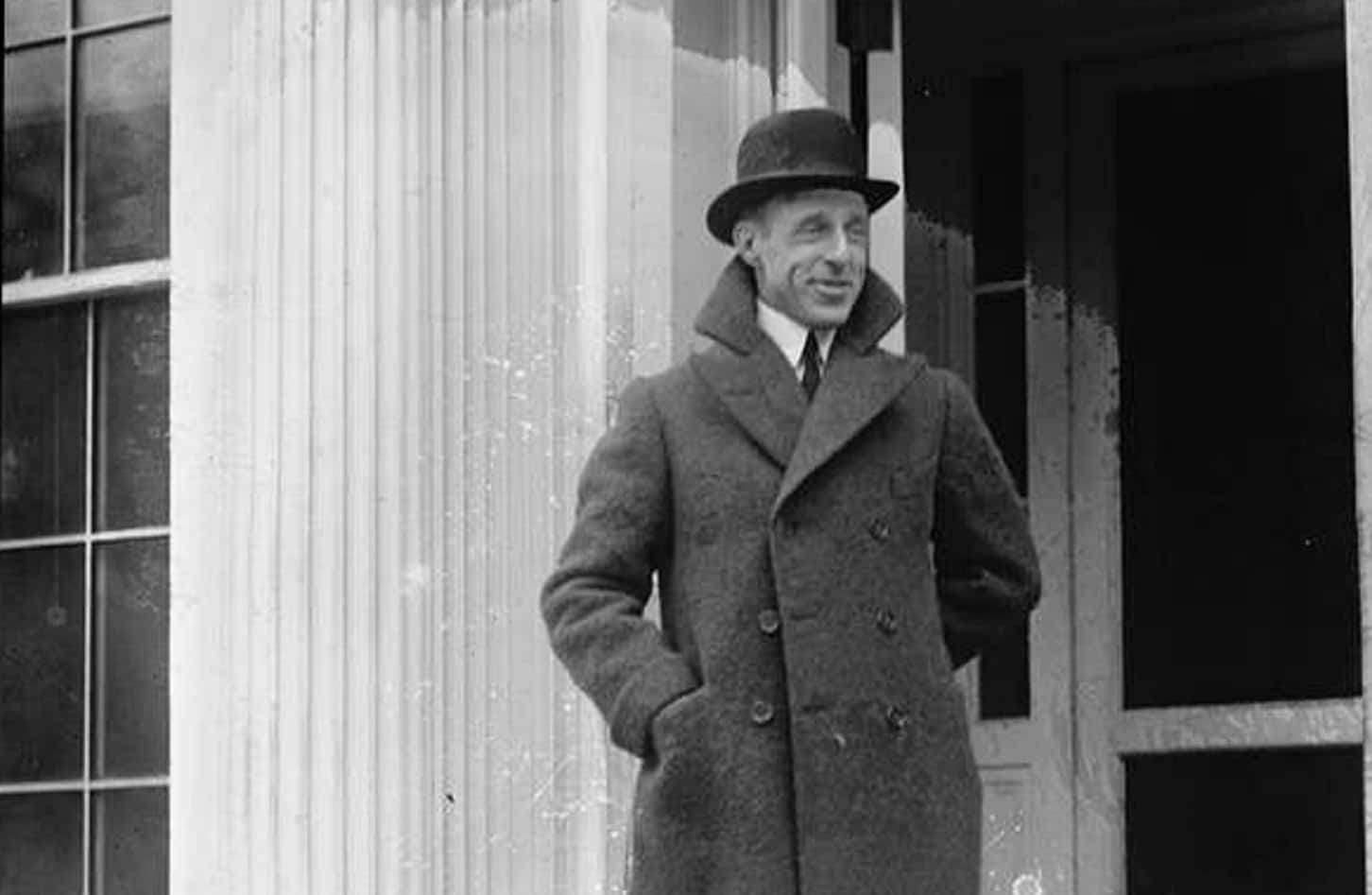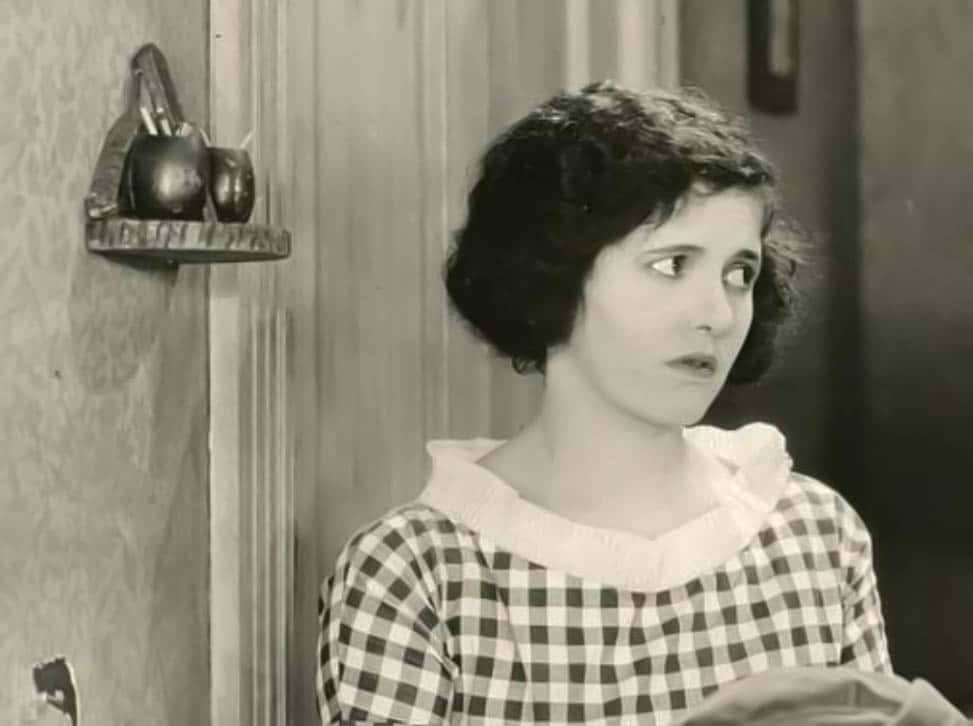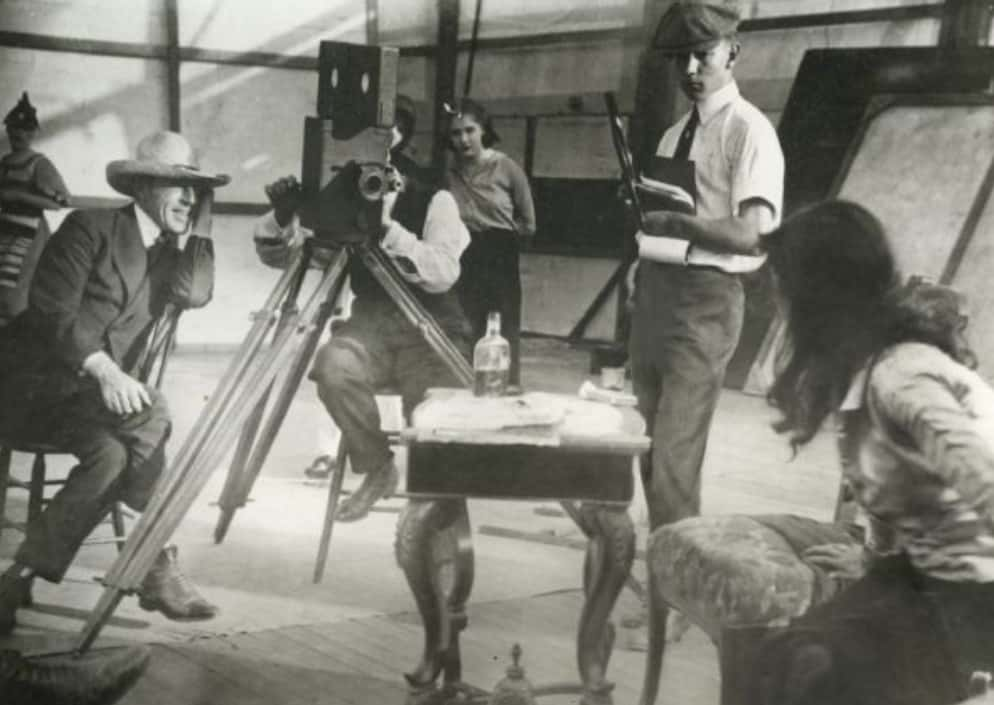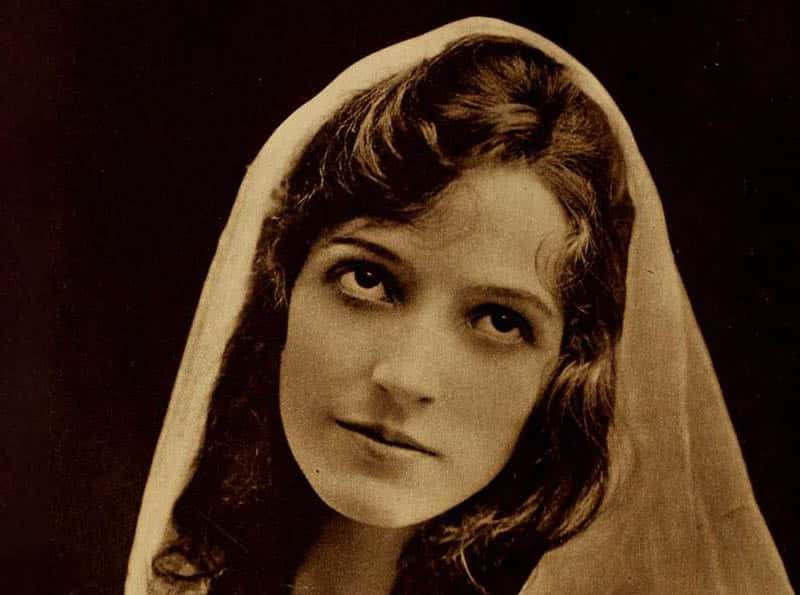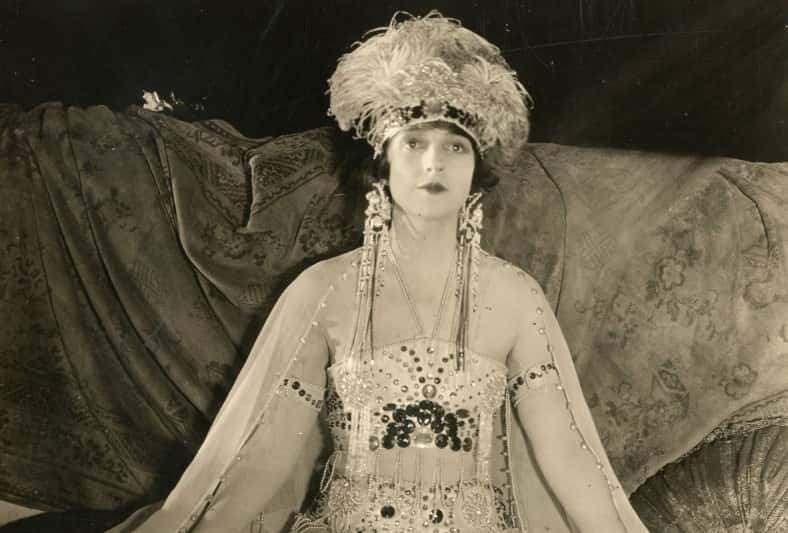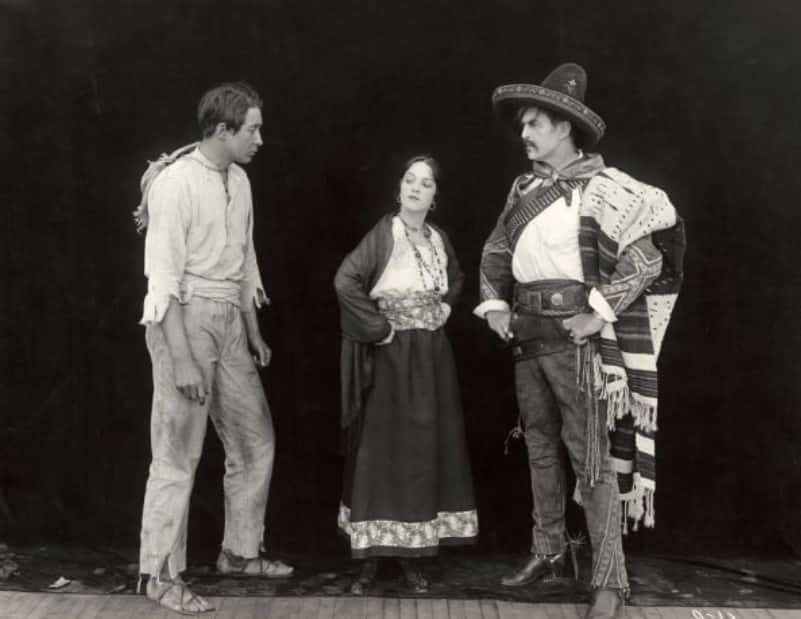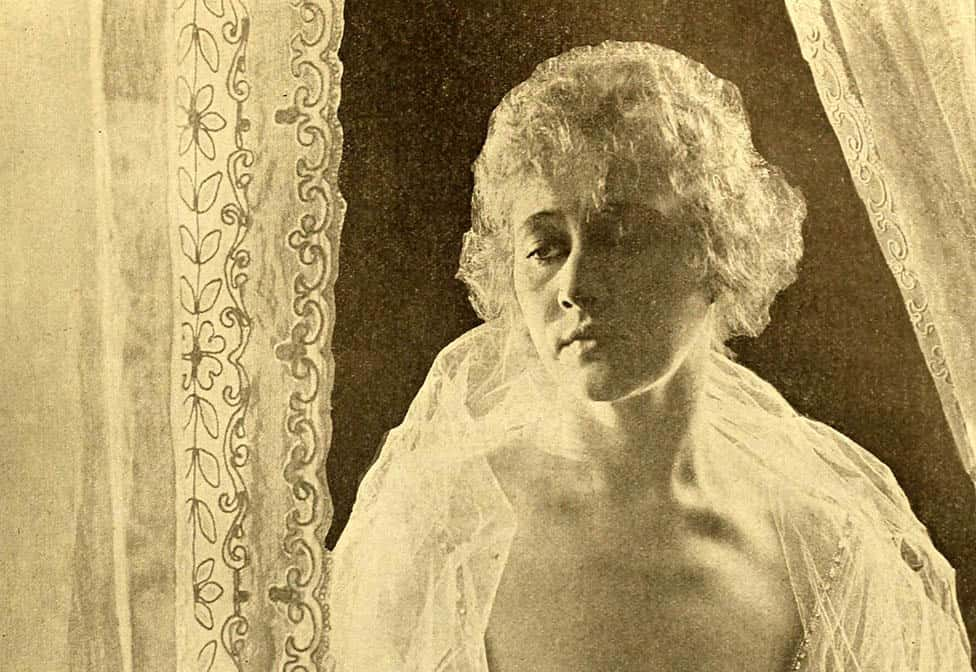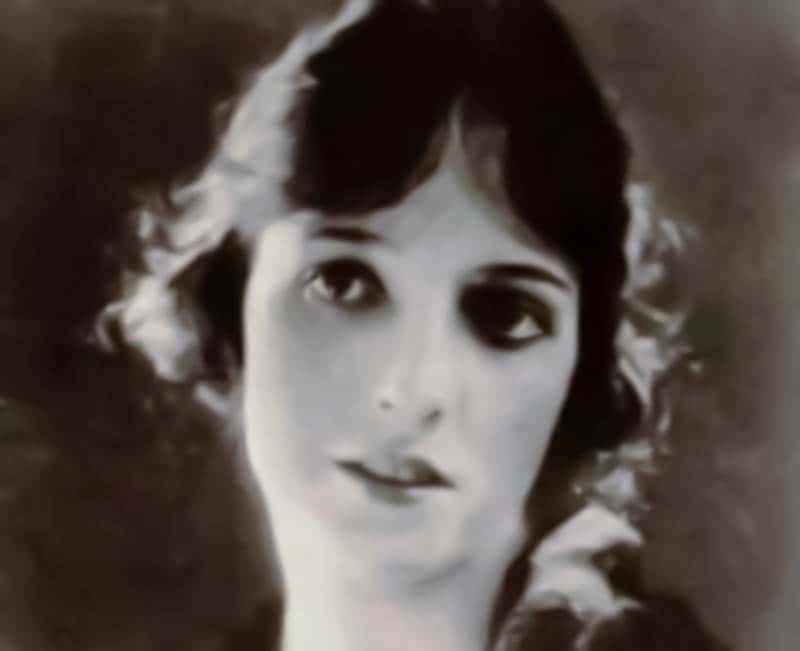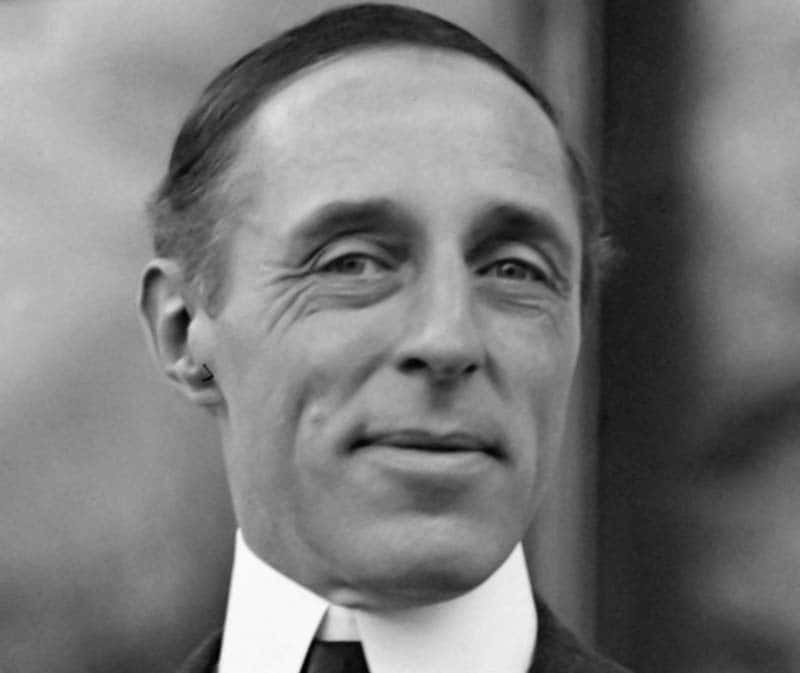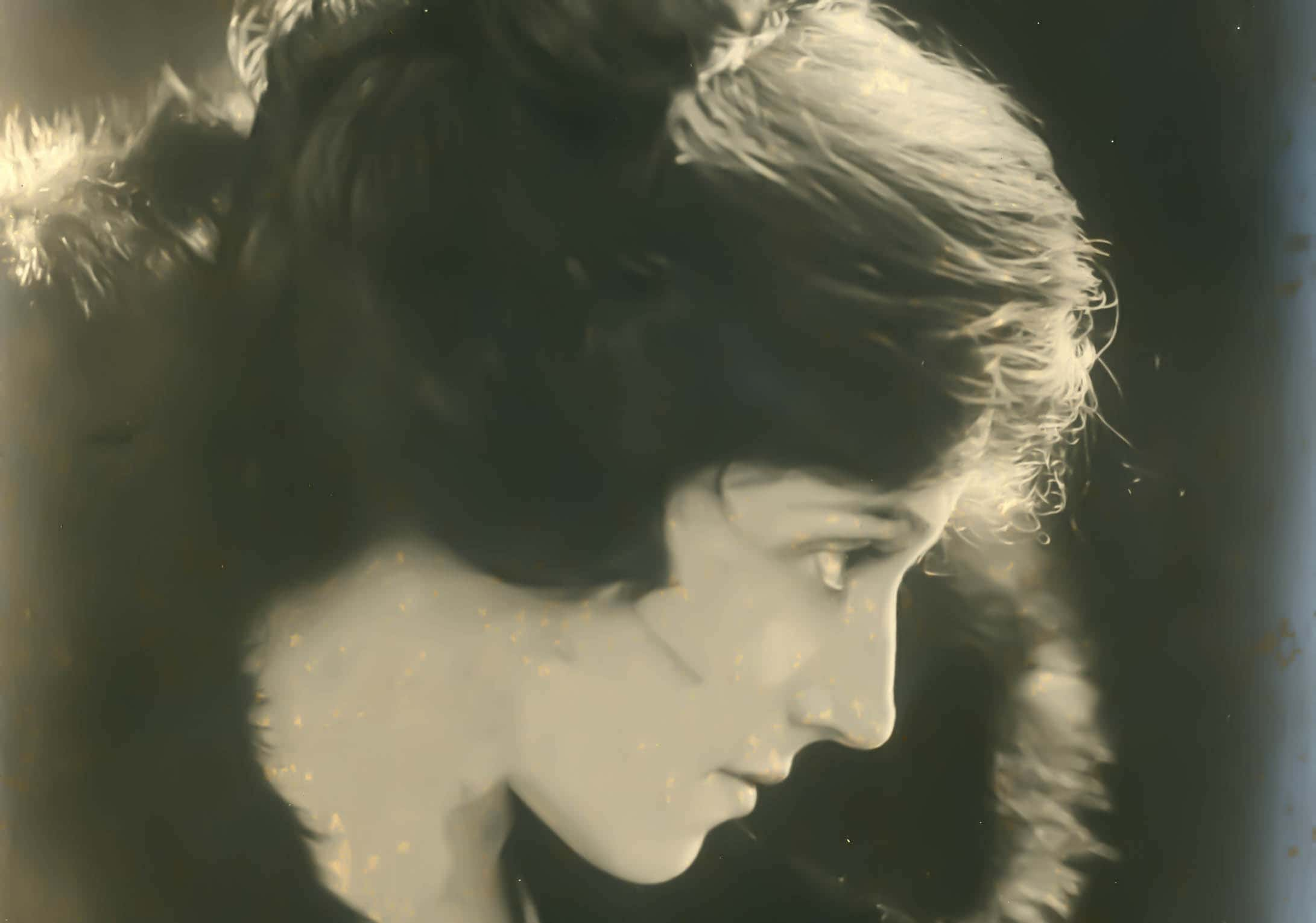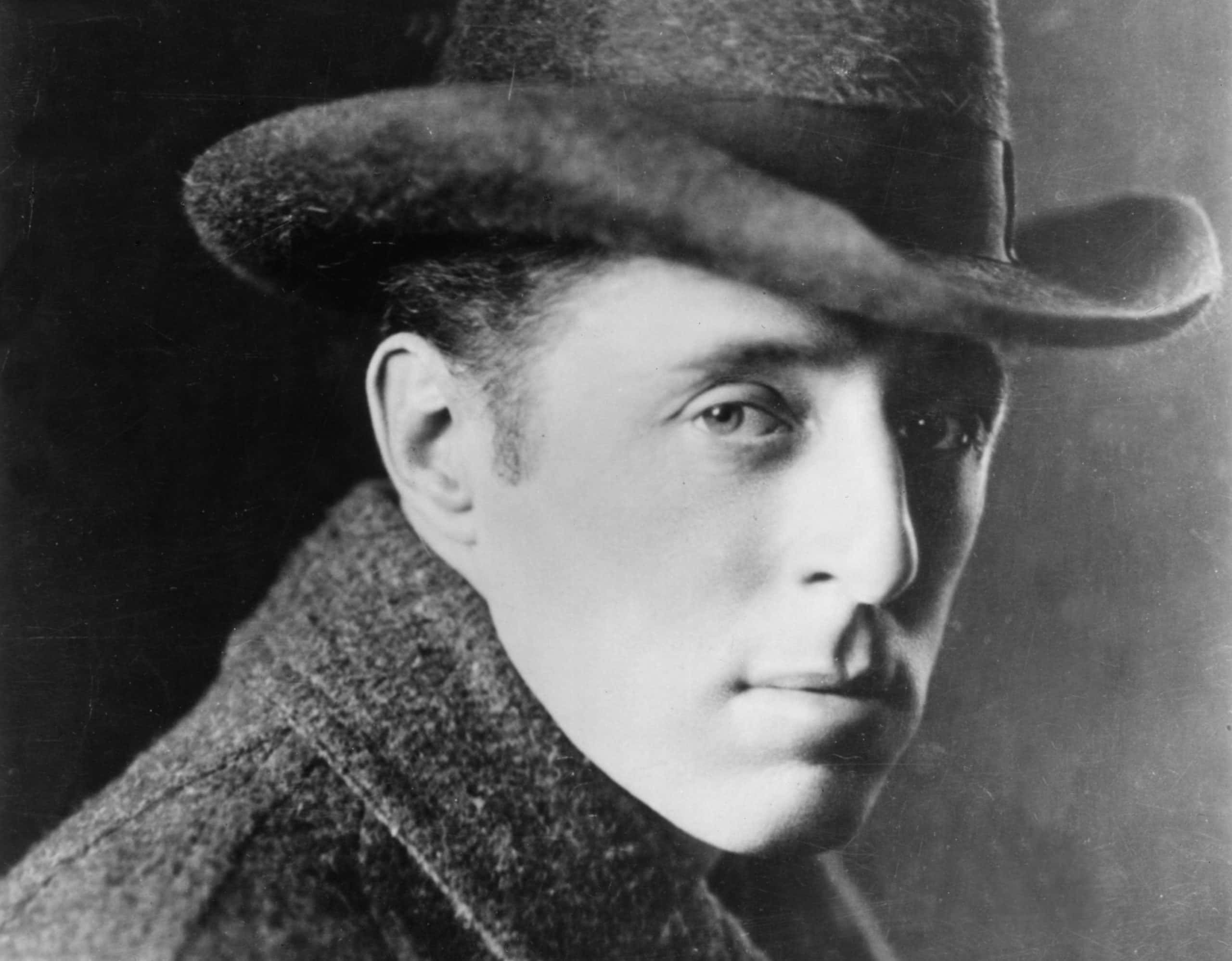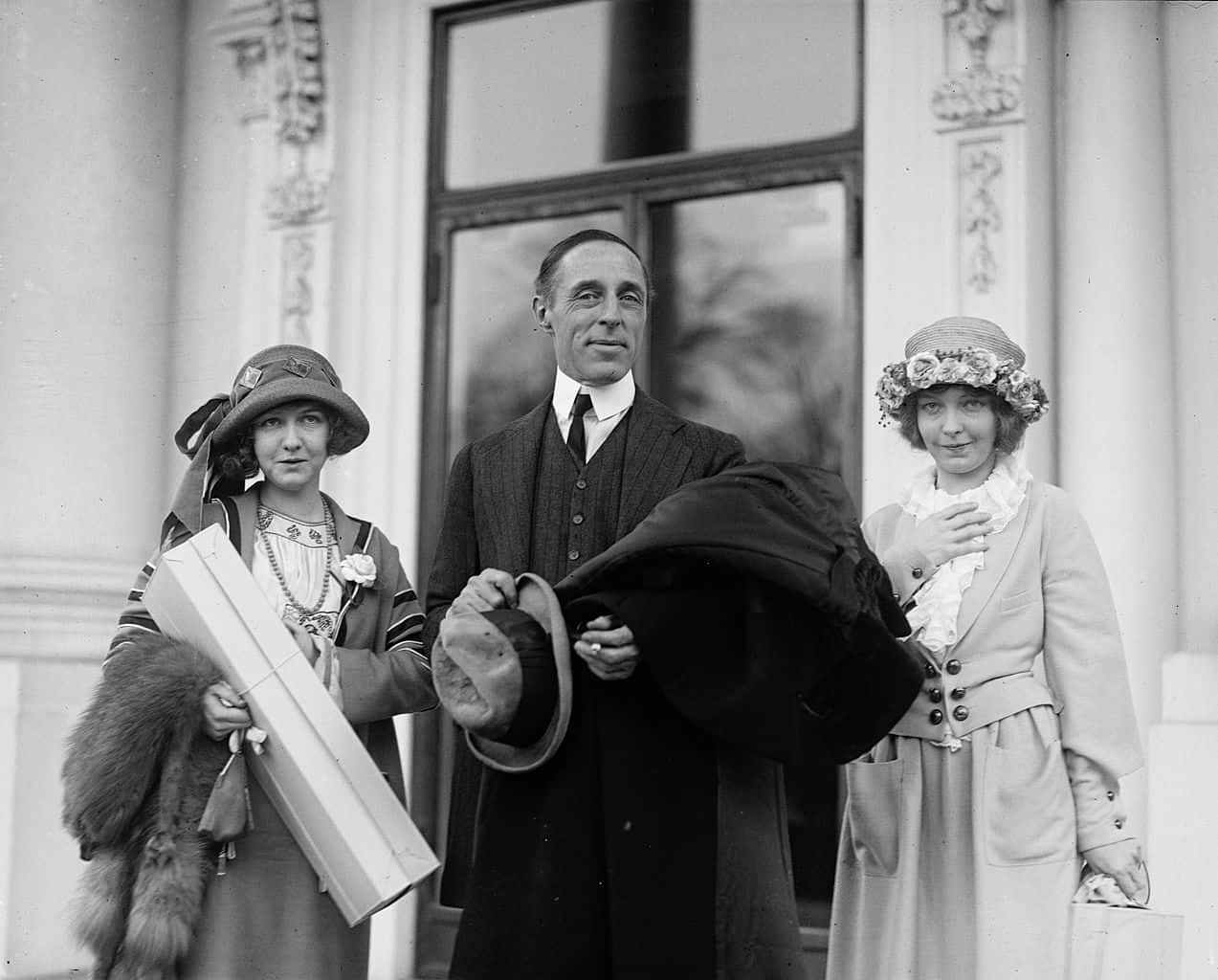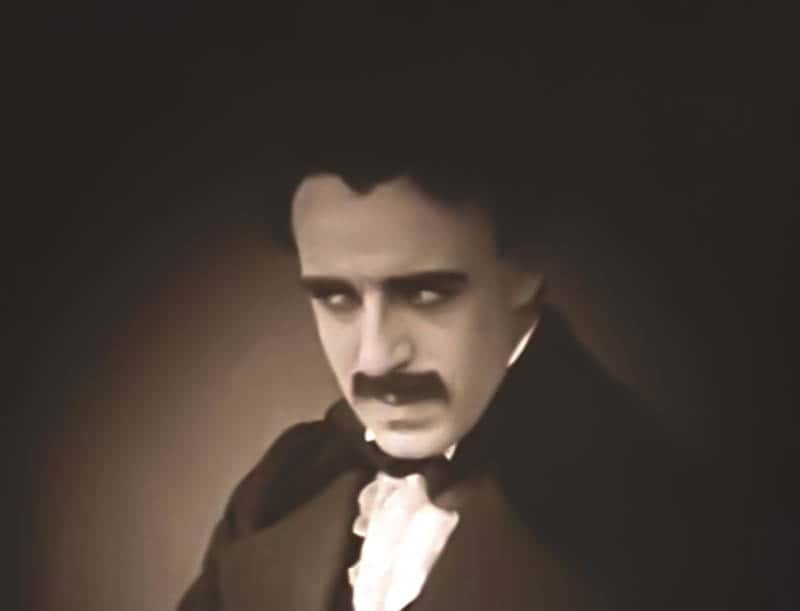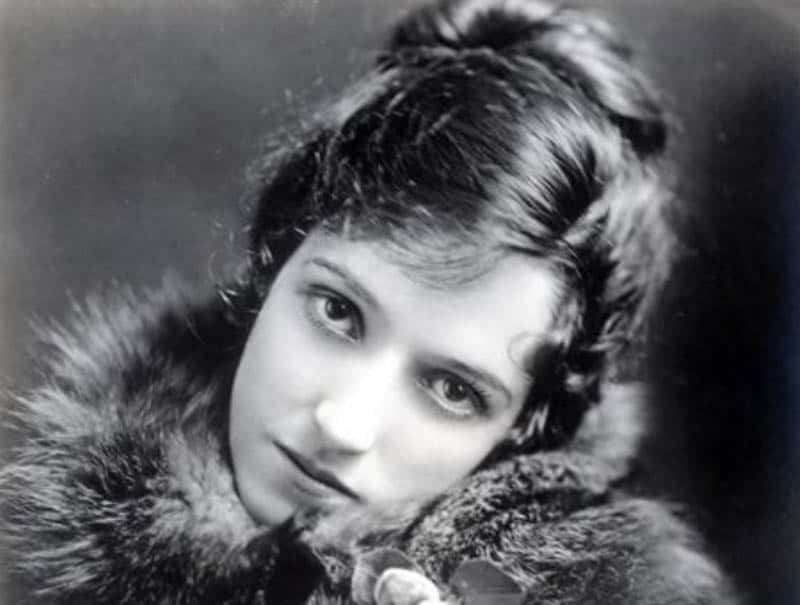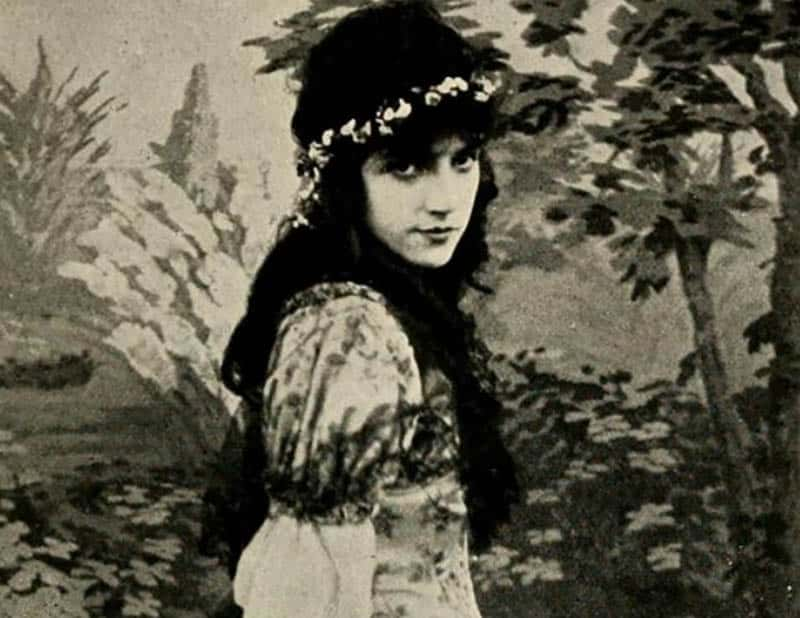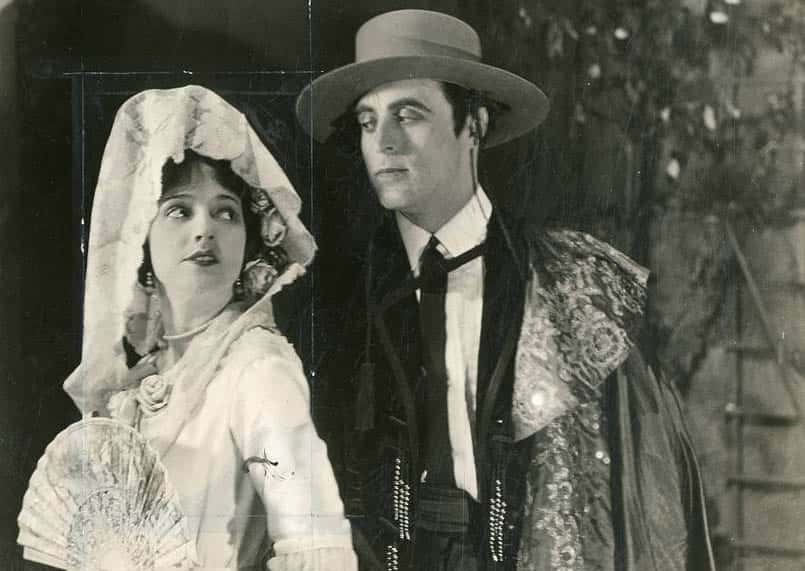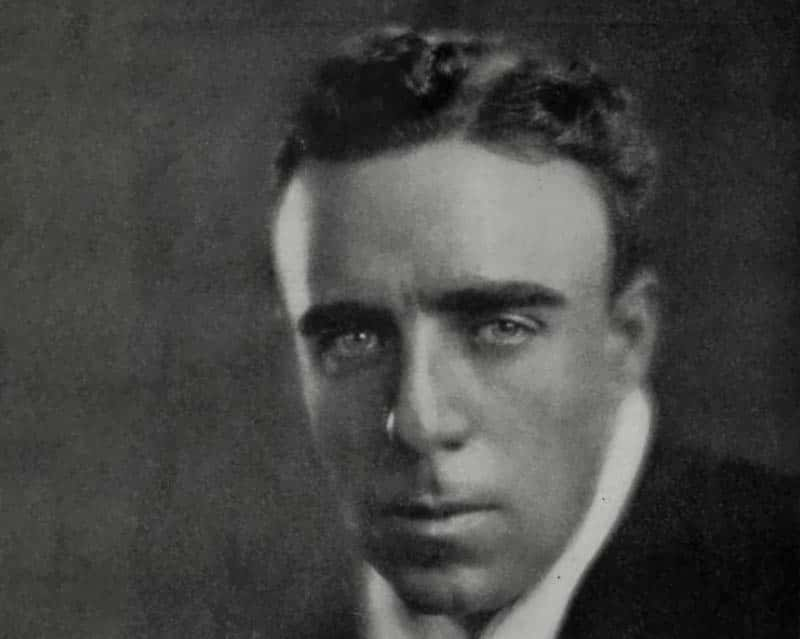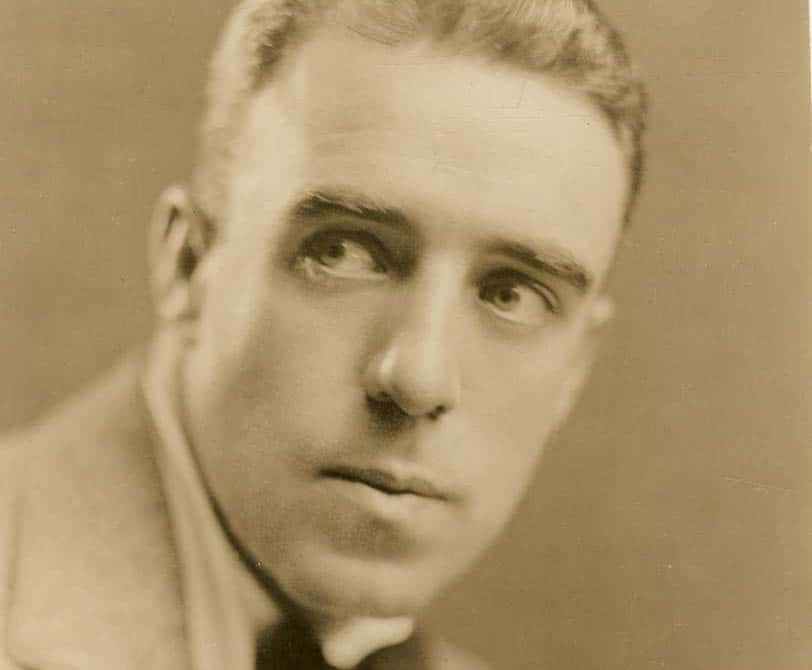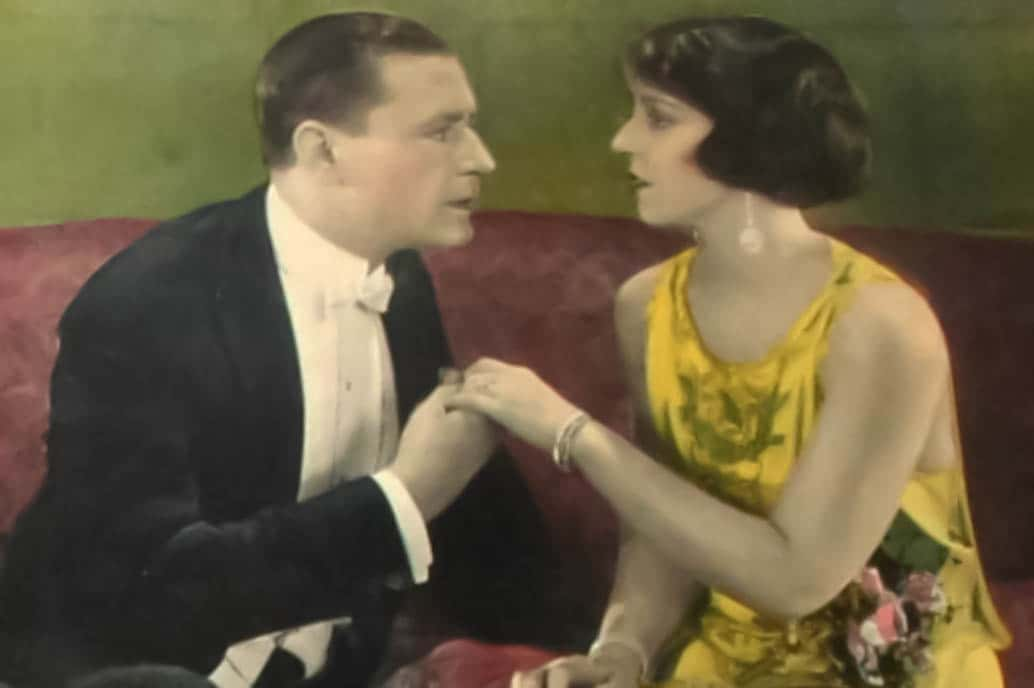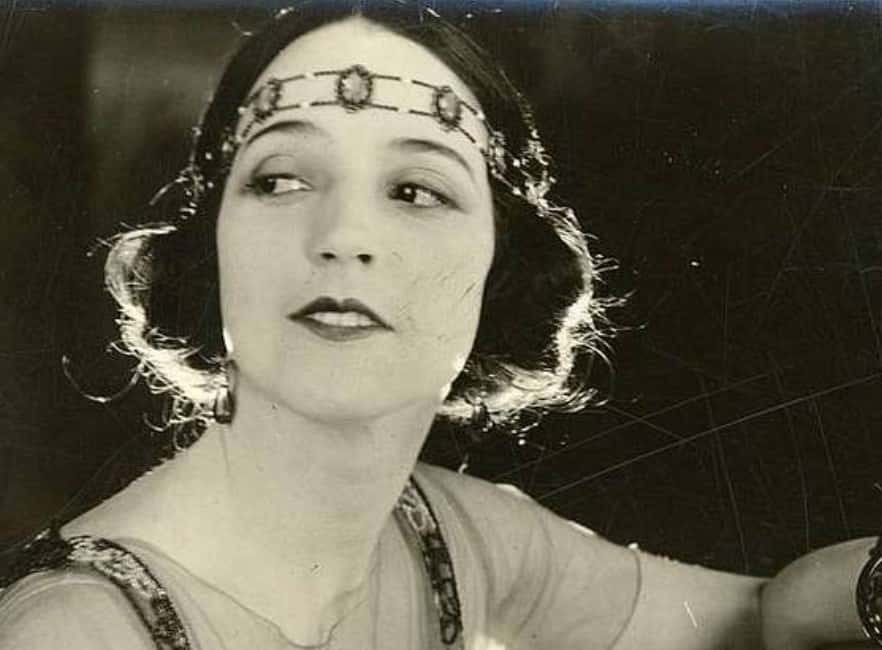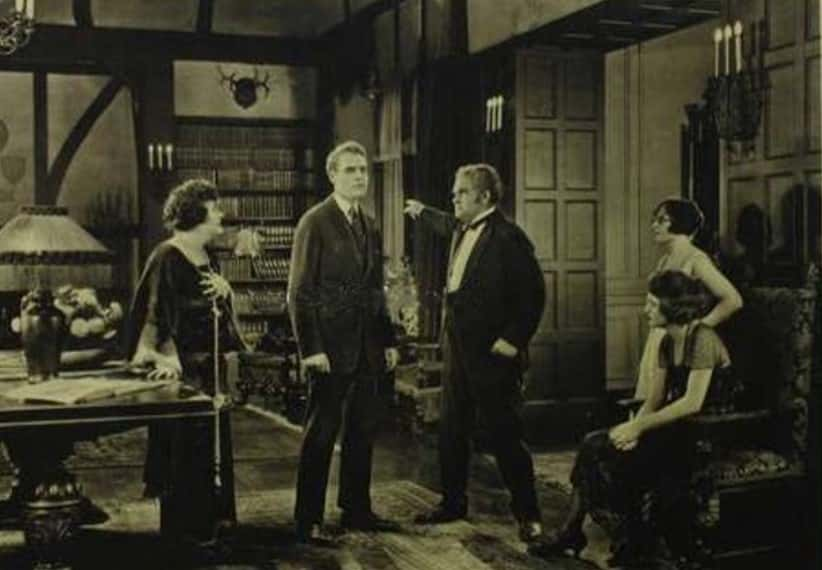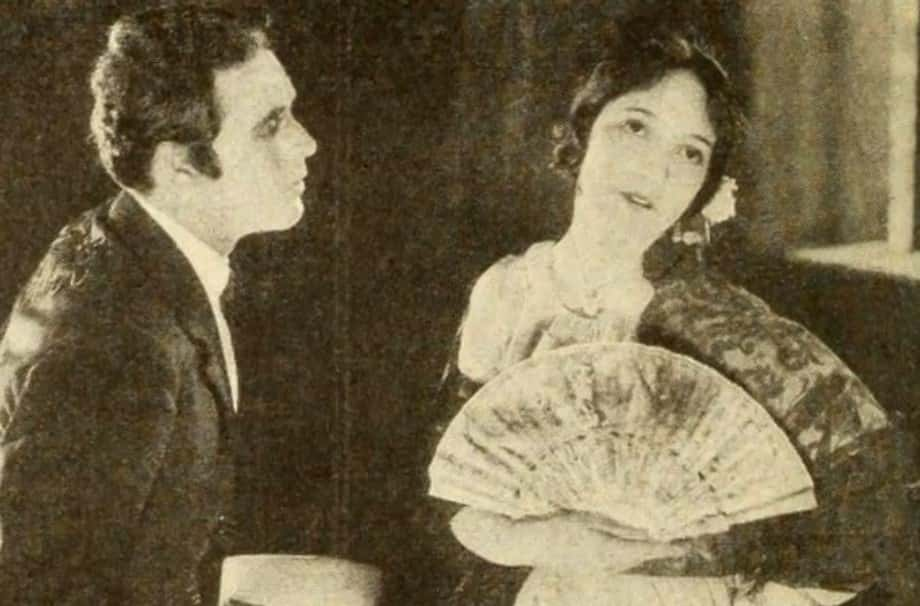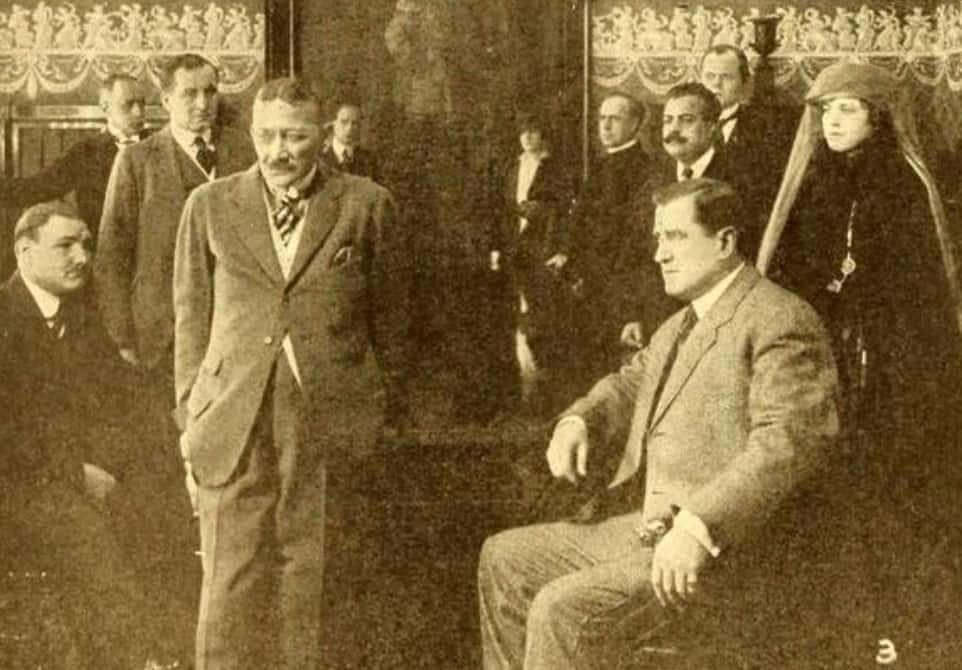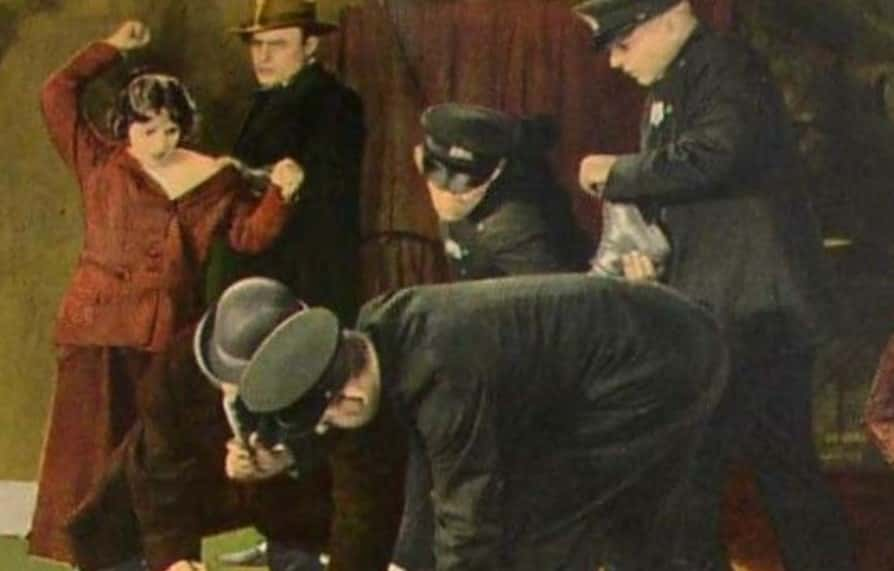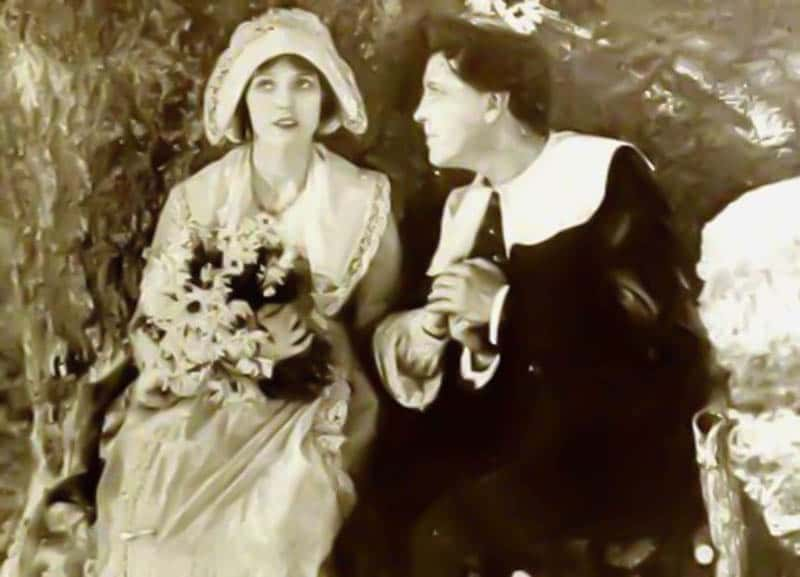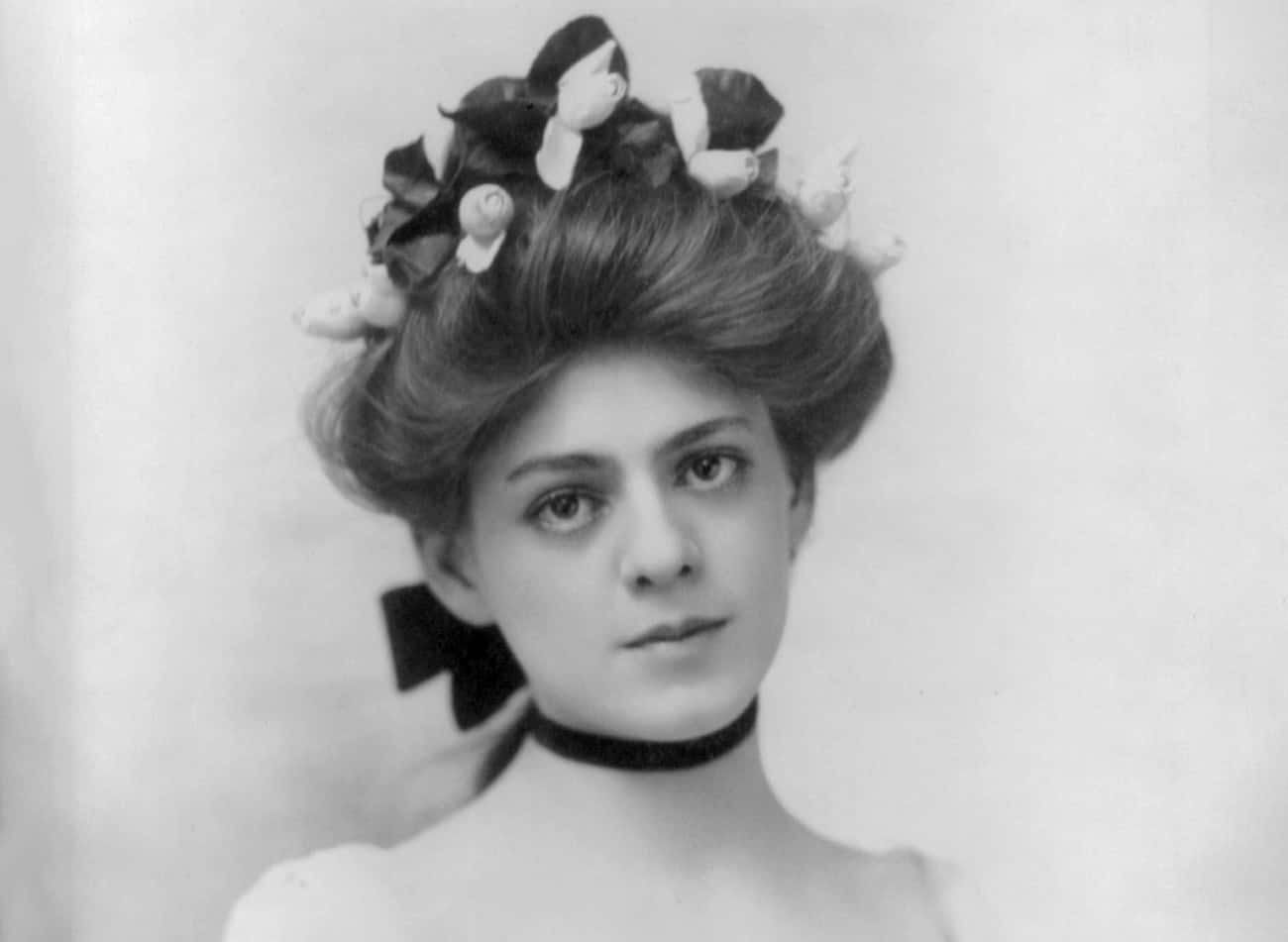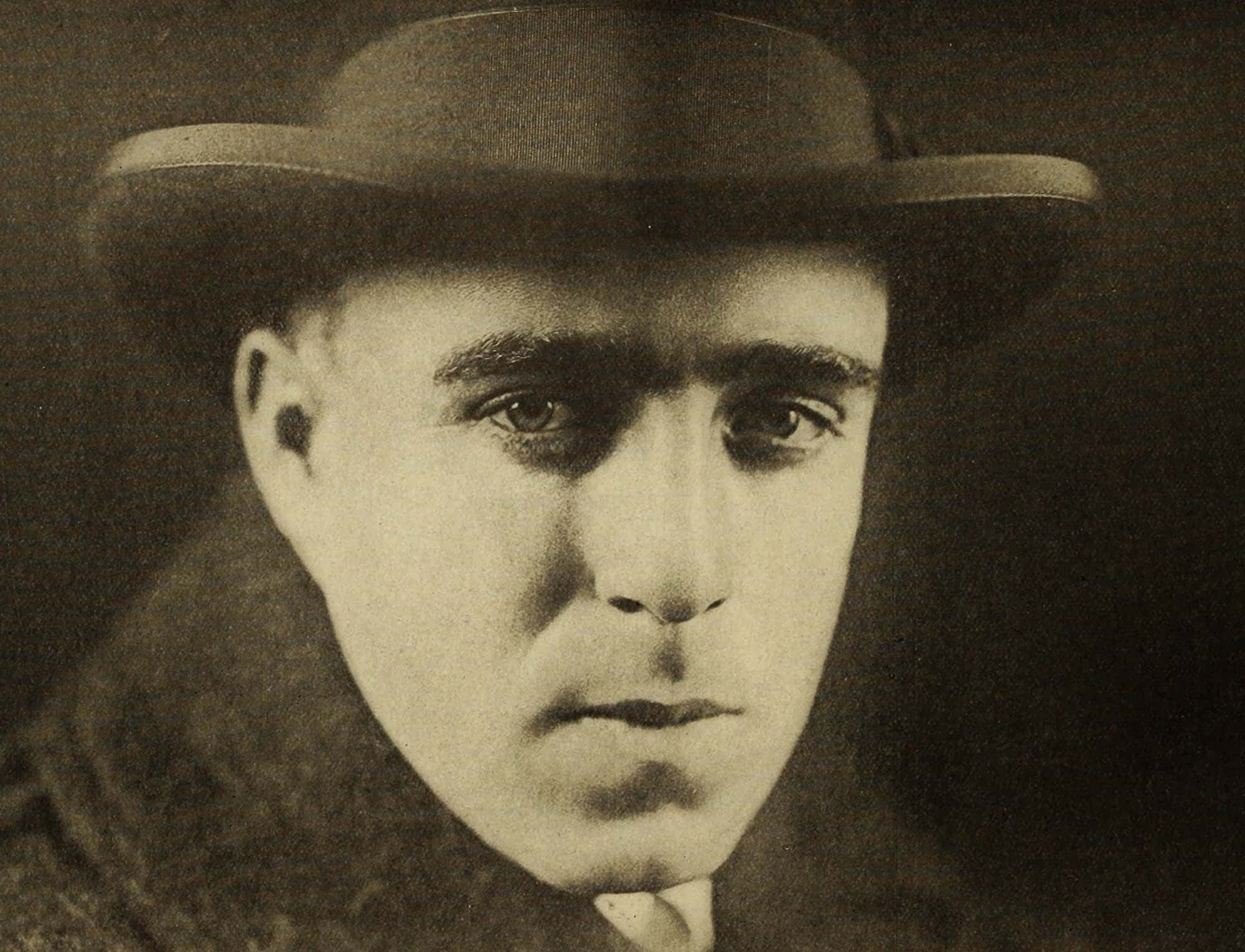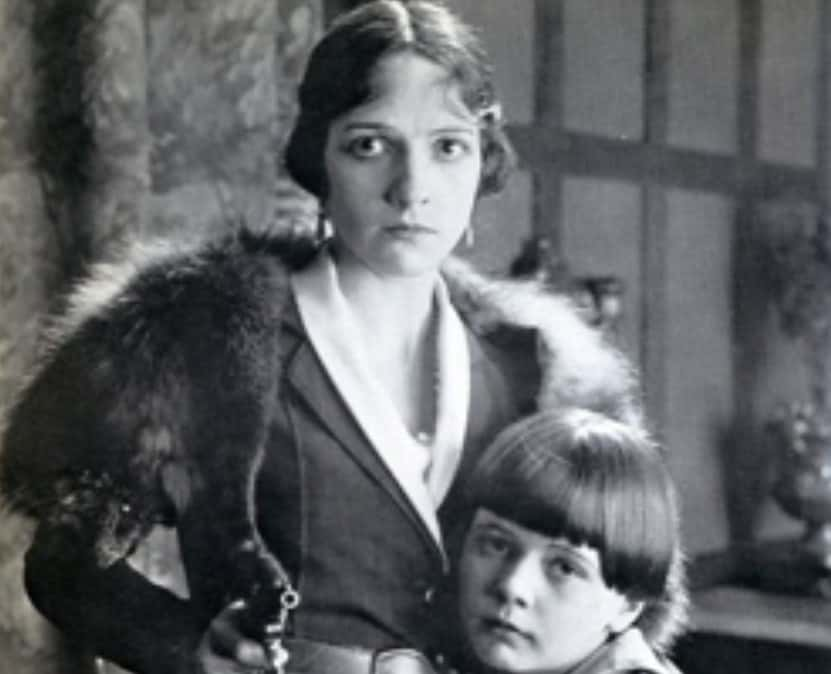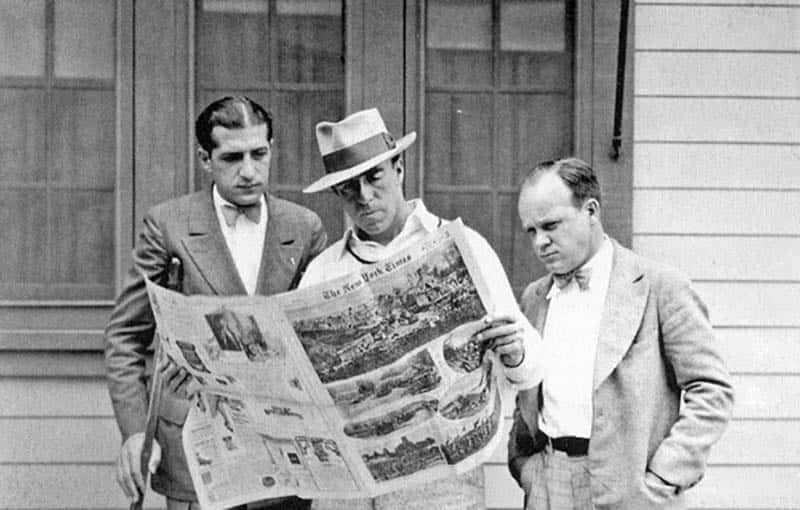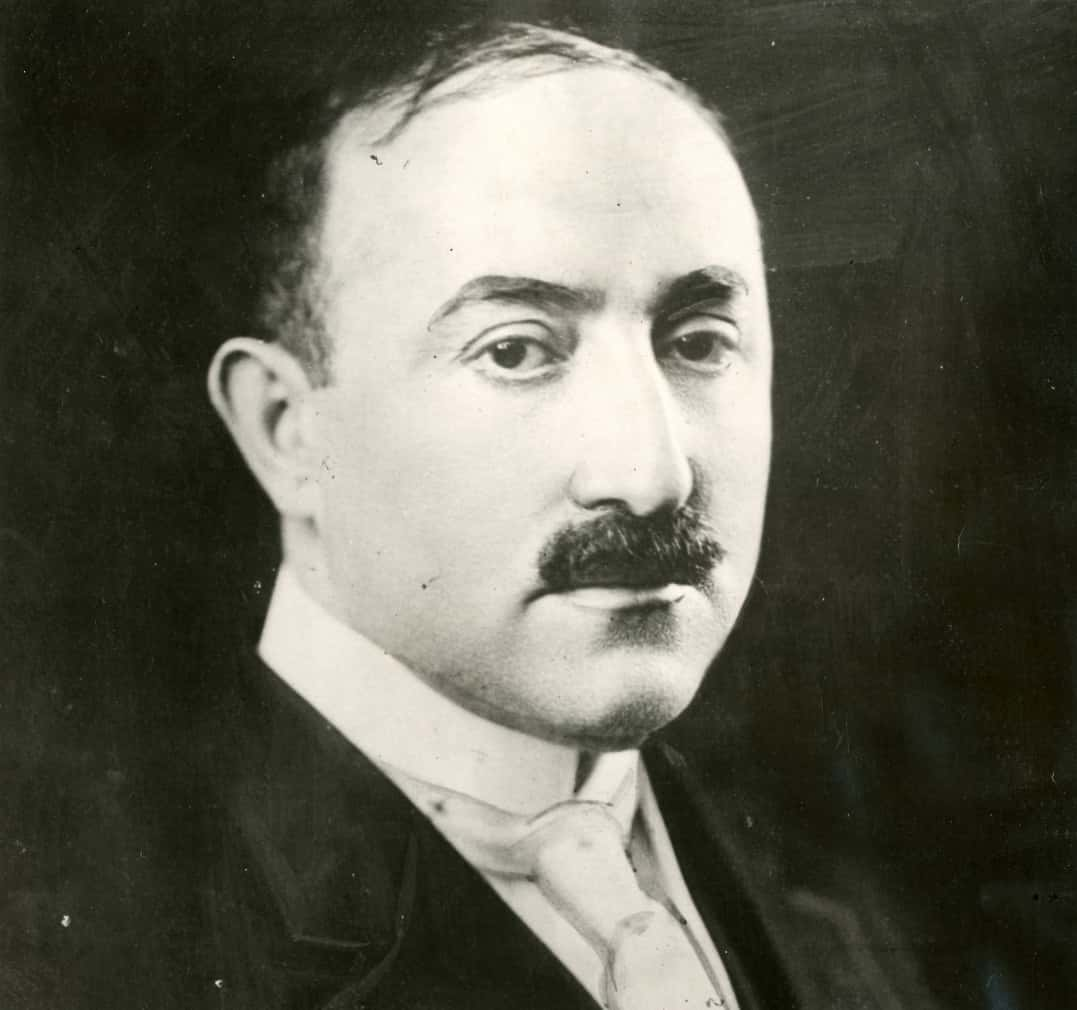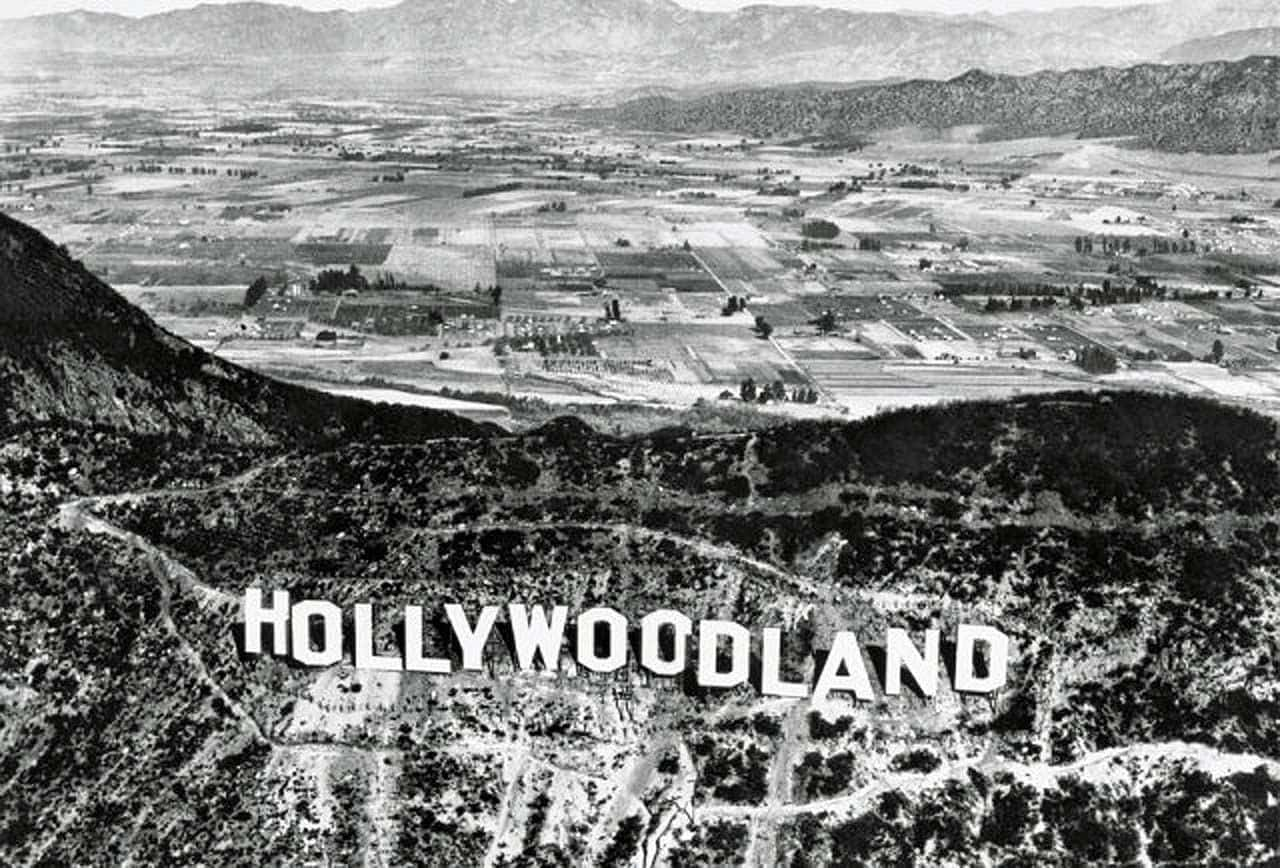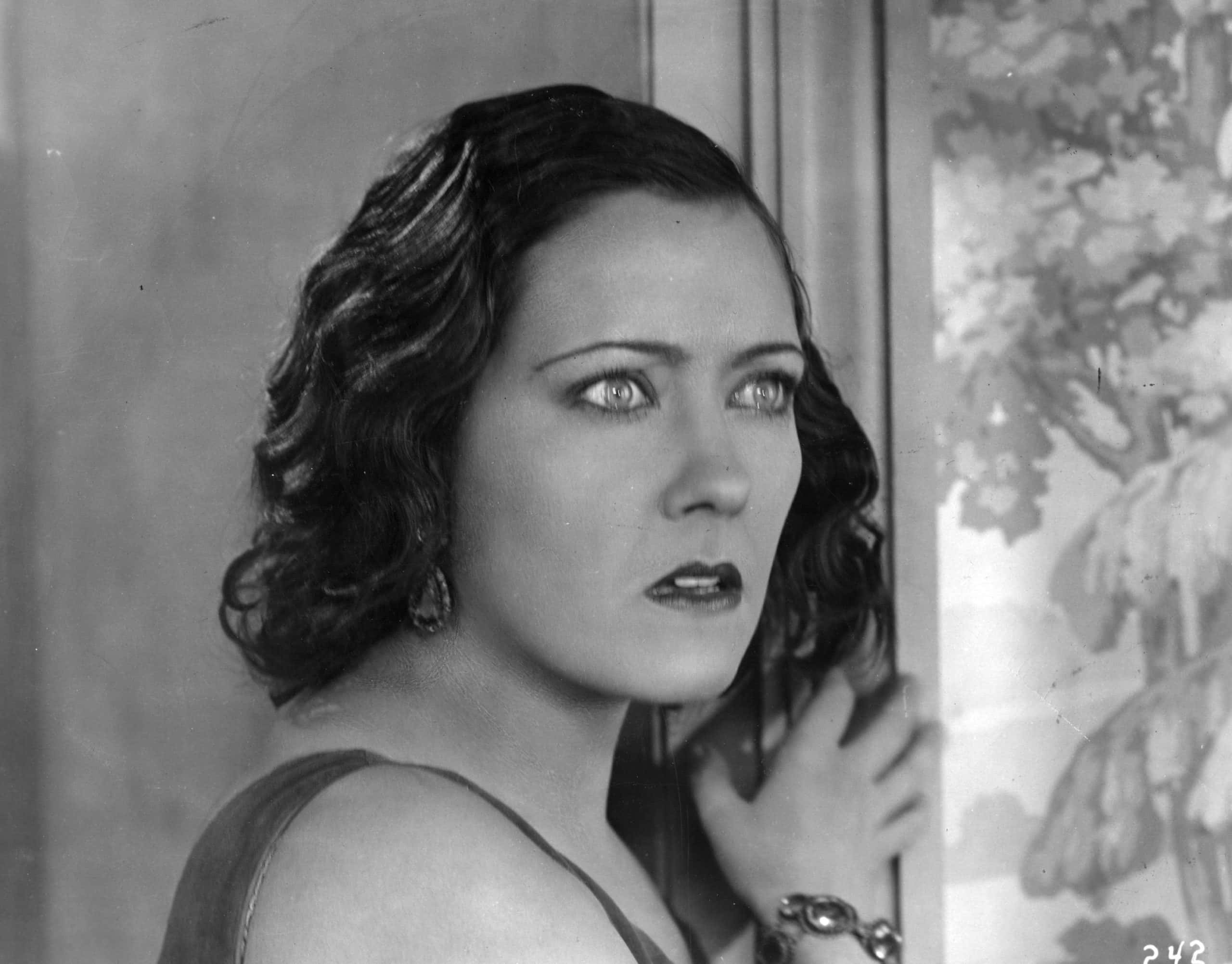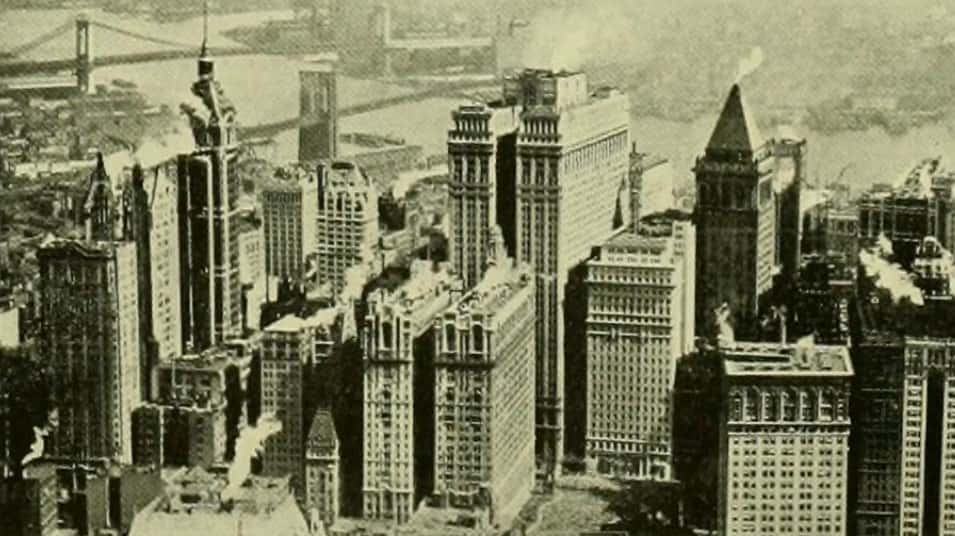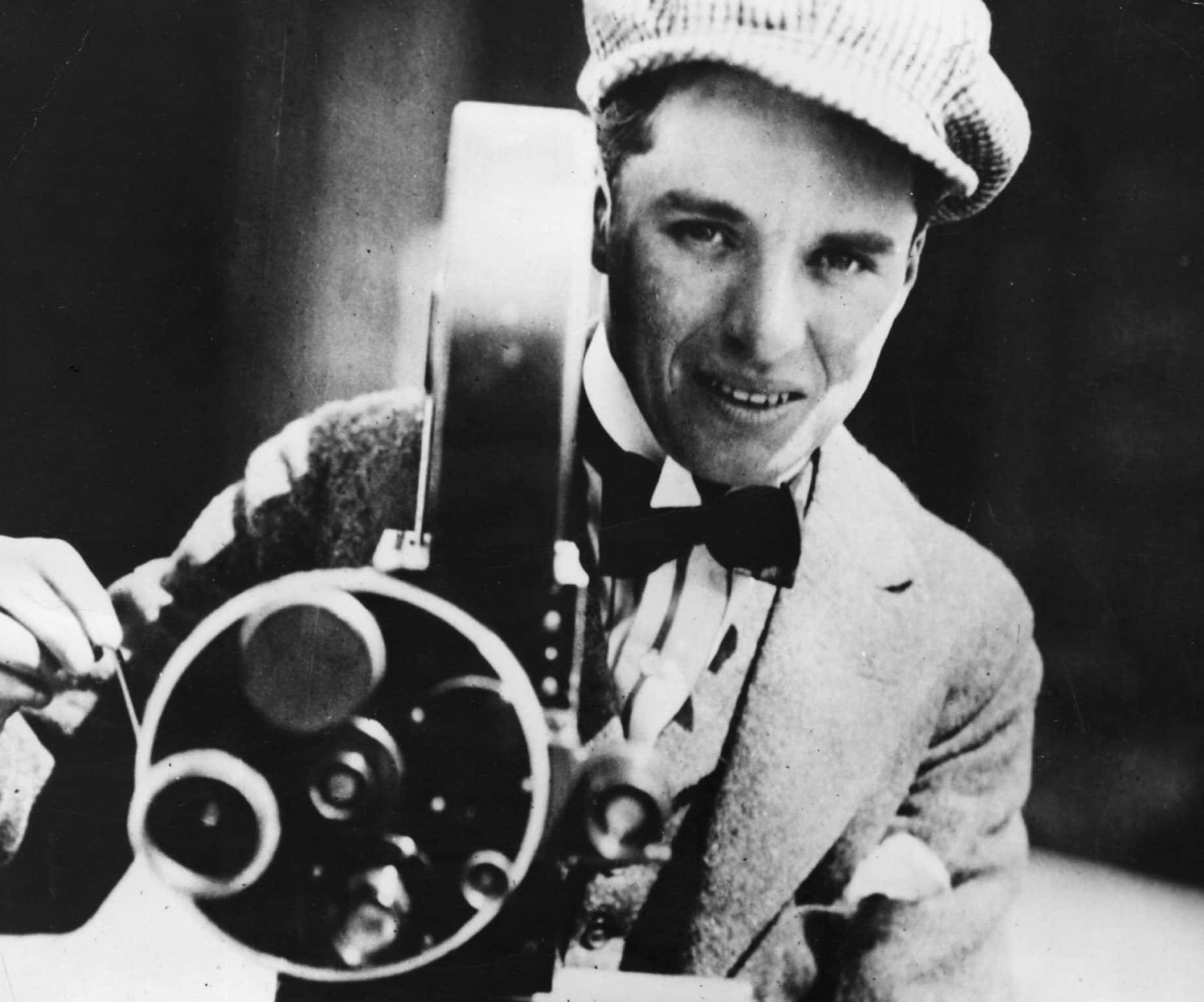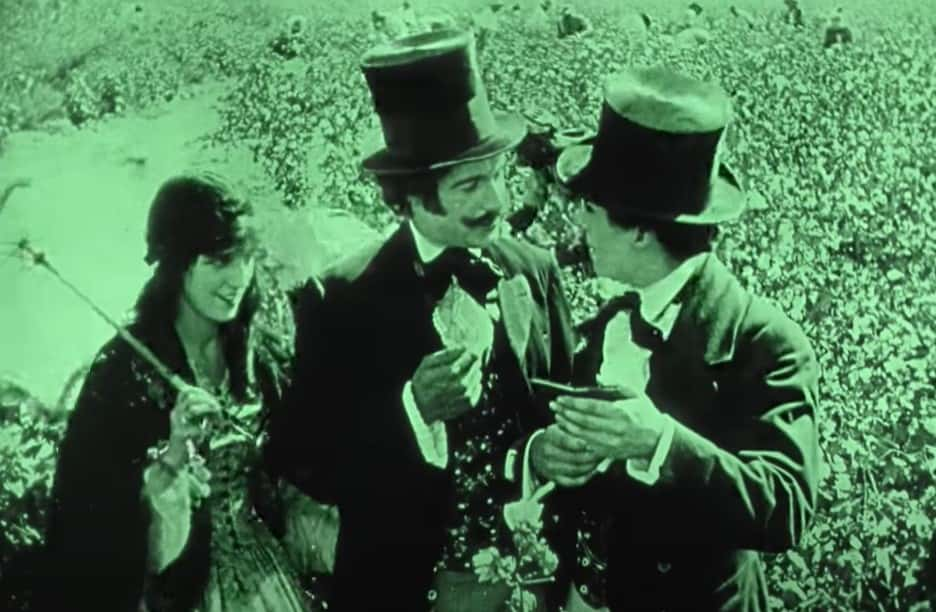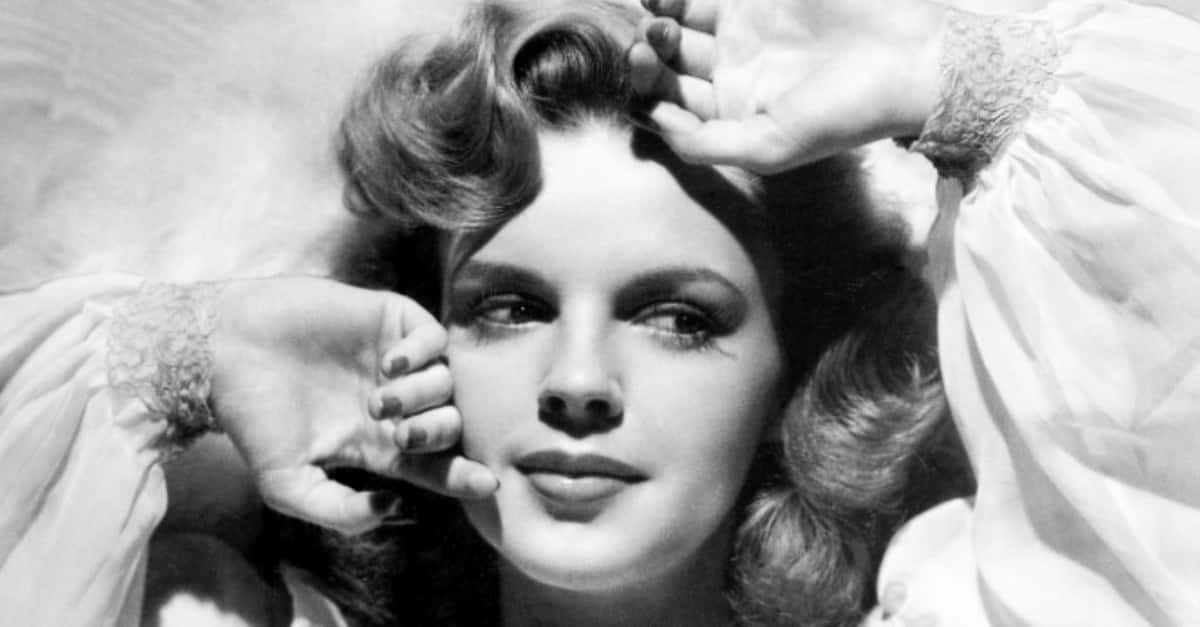Moody Facts About Miriam Cooper
Miriam Cooper was the self-professed “Dark Lady of the Silents,” but she never wanted a life of fame—just fortune. A chance encounter turned her into a Hollywood star, complete with all of the drama. From handsy directors to scandal-plagued marriages and duplicitous friendships, this reluctant film star led one sensational life.
1. Her Family Was Full Of It
Miriam Cooper was born in November of 1891 into a prominent Baltimore family. But her relatives had a disgusting history. Her grandfather had made the family fortune selling guano, AKA bird excrement. However, despite the generational wealth in her family, Cooper's childhood was about to take a wild downturn.
2. Her Father Abandoned Her
When she was just a little girl, Cooper’s father walked out, taking his fortune with him and forcing the family to move to the more affordable Little Italy in New York. Unfortunately, that was far from all. During this time, Cooper's mother began to resent her, claiming it was because she looked too much like her father.
In all fairness to Cooper’s mother, there was something off about the little girl.
3. She Was Silent As The Grave
During these difficult years, Cooper didn’t have many friends. That is, not unless you count the ones buried six feet under the ground. The odd little girl spent most of her time in a local Dutch cemetery, lying on graves and daydreaming—and it soon became clear about what. After growing up destitute, Cooper was through with poverty...and her ruthless pursuit of money led her straight to Hollywood.
4. She Didn't Like Films
On the advice of a friend, Cooper went to Biograph Studios—one of the first film studios—in New York City to see what all the fuss was about. She got off to a rough start. Cooper, who had seen just one film before, was totally unimpressed with the new storytelling medium. But when she got on set that day, a plot twist came with her.
5. She Worked As A Scullery Maid
The legendary film director DW Griffith just so happened to be filming A Blot on The 'Scutcheon the day that Cooper stopped by. After spotting her in the background, Griffith's assistant went over and asked if she'd work as an extra, in a scullery maid role, for $5 a day. Being poor and desperate, she agreed. She made a lasting impression—but not exactly in a good way.
6. A Fellow Starlet Tried To Sabotage Her
Everyone on set could see that Cooper was a star, but not everyone was eager to help her shine on screen. Likely threatened by Cooper's charisma, silent film star Teddy Sampson tried to sabotage the ingenue by ruining her makeup. Luckily, friendlier stars Mack Sennett and Mabel Normand clocked the trickery and helped Cooper out. And it was a good thing they did.
7. She Attracted The Big Man’s Attention
After filming wrapped that day, the production team told Cooper to stay in costume. Apparently, her star power was so strong, DW Griffith had noticed even in her humble maid role, and wanted to screen test her. At least, that’s what he said he wanted to do. As the days passed after her set visit, Cooper got a sinking feeling.
8. She Liked The Money
Despite her successful film debut, Cooper got a huge disappointment. Whether he ever intended to screen test her, she didn't hear back from Griffith or Biograph Studios. But by then, it was too late for Cooper to give up: That $5 a day meant everything to her, and she wanted to get her hands on more. She set her plan into motion.

History's most fascinating stories and darkest secrets, delivered to your inbox daily.
9. She Got A Shameful Job
Desperate to make more quick money, Cooper went to several studios for work, received a series of rejections, and then finally landed a $35/week contract with another studio that was set to start filming in Florida. There was just one problem. Acting at the time was seen as a shameful occupation, and Cooper didn't want to tell her family about her new job.
It took a heartbreaking moment for her to confess.
10. Her Family Dressed In Rags
While hemming and hawing about whether or not to let her mother and siblings in on her contract, Cooper witnessed a sight she wouldn't soon forget. She went home and saw that her family, having no money for clothes themselves, were all outfitted in the much larger hand-me-downs of a recently deceased aunt.
Enough was enough, and Cooper finally admitted her intention to join the studio and become rich and famous. Her mother deeply disapproved, but Cooper intended to make good on her promise. Instead, she made a fatal error.
11. She Got Greedy
While working for the new studio, Cooper had to learn to ride on horseback and play the drums, as well as use her skill as a swimmer in several roles. To be fair, these were demanding roles...but Cooper got it in her head that she was worth more than even the studio's current star, Anna Nilsson. When Cooper pressed the studio for a pay raise, it backfired on her hard.
Instead of agreeing, they promptly fired her and sent her back to New York.
12. She Beat The Pavement
Despite this setback, Cooper still wasn’t ready to give up on the gravy-train that was screen acting. Back in New York, she showed up at Biograph Studios every day for a week in an effort to recreate her earlier luck. The reply was crushing. This time, no one noticed her. It seemed like her one chance at fame and fortune had disappeared just as quickly as it had appeared.
Until, that is, another strange twist of fate came along.
13. She Was Untraceable
One day when Cooper was walking down the street, her lucky streak returned. She just so happened to bump into the same assistant of DW Griffith who had first offered her the role of a scullery maid. More than that, the assistant had sensational news. As it turned out, Griffith had been searching high and low for Cooper.
However, without having access to her phone number, he had been unable to locate her. In the blink of an eye, everything changed again. But it also got weird fast.
14. She Landed A Major Role
When Cooper returned to Biograph Studios, she wasn’t sure what to make of the situation. Within the first day, Griffith called her into his office five times, only to send her away each time. Then, finally, he had her rehearse a scene with actor Bobby Harron and, after liking what he saw, informed her that they were headed to California to begin filming on a major project.
It was enough to make the girl's head spin. Yet even in California, Griffith kept her guessing.
15. She Made It To Hollywood
Cooper had already messed up her first chance at acting out-of-state, so she really wanted to nail this assignment. Only, that was easier said than done. Griffith usually didn't even bother telling Cooper what film she was shooting for when she did her scenes, leaving her with a very vague understanding of her own resume. And that's just the start.
Above all, she certainly had no idea that Griffith wanted her as the star in one of the most infamous films in Hollywood history.
16. She Was A Natural
Soon, Griffith cast Cooper in 1915’s highly controversial film The Birth of a Nation. For the most part, Cooper played her role with ease—probably because she had no idea what she was filming half the time, and couldn't even remember the start of the production. But there was one challenging scene that pushed her to her limits, and definitely crossed an ethical line.
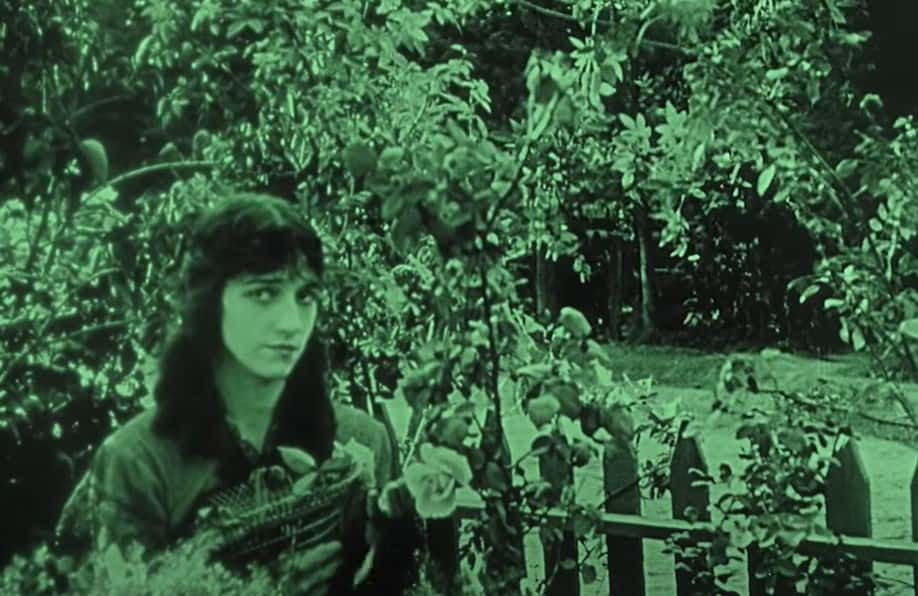 The Birth of a Nation (1915), David W. Griffith Corp.
The Birth of a Nation (1915), David W. Griffith Corp.
17. Her Director Manipulated Her
In one scene that was supposed to be a tear-jerker, Cooper was having difficulty connecting with her emotions. Her director's solution was ghastly. Griffith pulled Cooper aside and informed her that, regrettably, her mother had passed away back in New York. In tears, Cooper finished filming the scene, only to have Griffith inform her that he had lied.
This wasn't the only clash she had with the auteur, either.
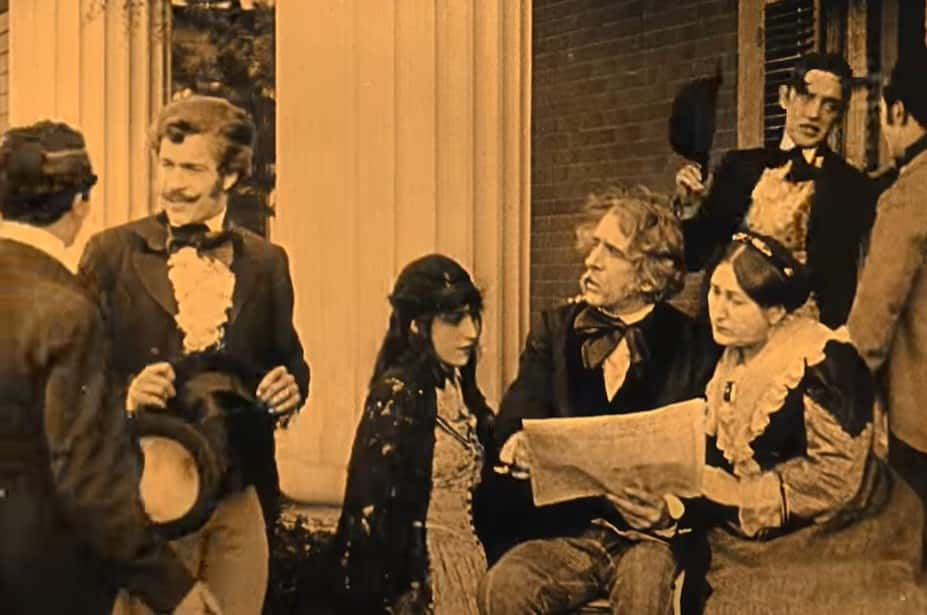 The Birth of a Nation (1915), David W. Griffith Corp.
The Birth of a Nation (1915), David W. Griffith Corp.
18. She Was A Diva
For the most part, Cooper and Griffith got along famously, but they did have one brief, sharp falling out. When Cooper first arrived in California, she felt Griffith snubbed her one morning after she told him hello. The insulted Cooper blew off some steam and complained to her co-star Mae Marsh about it—only to have Marsh go right to Griffith to tattle.
This turn of the gossip mill annoyed Griffith so much, he sniped the next day on set that Cooper was "The Queen of Sheba," and the name stuck to her like glue. Then again, their squabbles might have hidden deeper meanings.
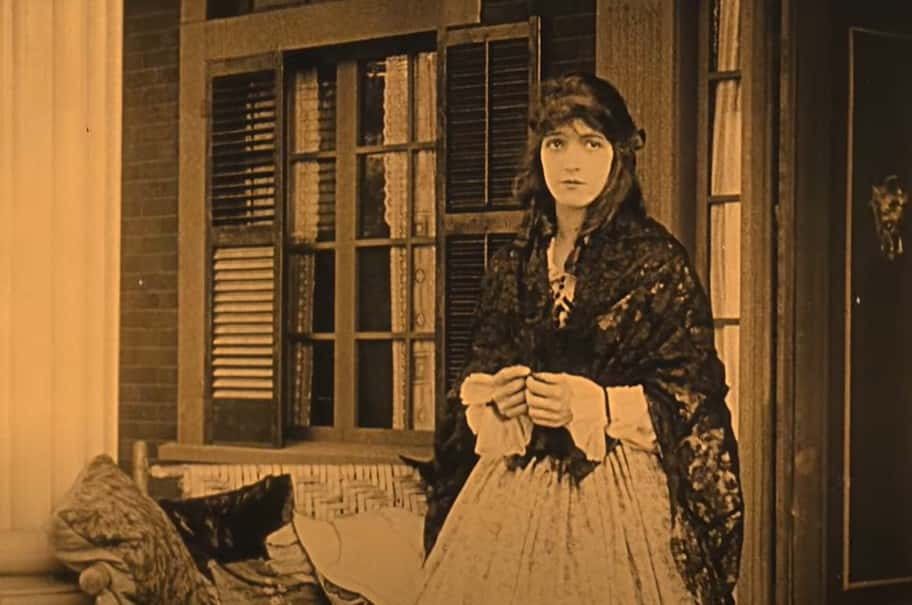 The Birth of a Nation (1915), David W. Griffith Corp.
The Birth of a Nation (1915), David W. Griffith Corp.
19. She Didn’t Sleep Her Way To The Top
Given their close friendship and the fact that Griffith had plucked Cooper up out of obscurity, there was speculation that the two were romantically involved. Cooper denied ever having relations with Griffith and once called him a "perfect gentleman". Even so, her memoirs reveal a more unsettling side to their relationship.
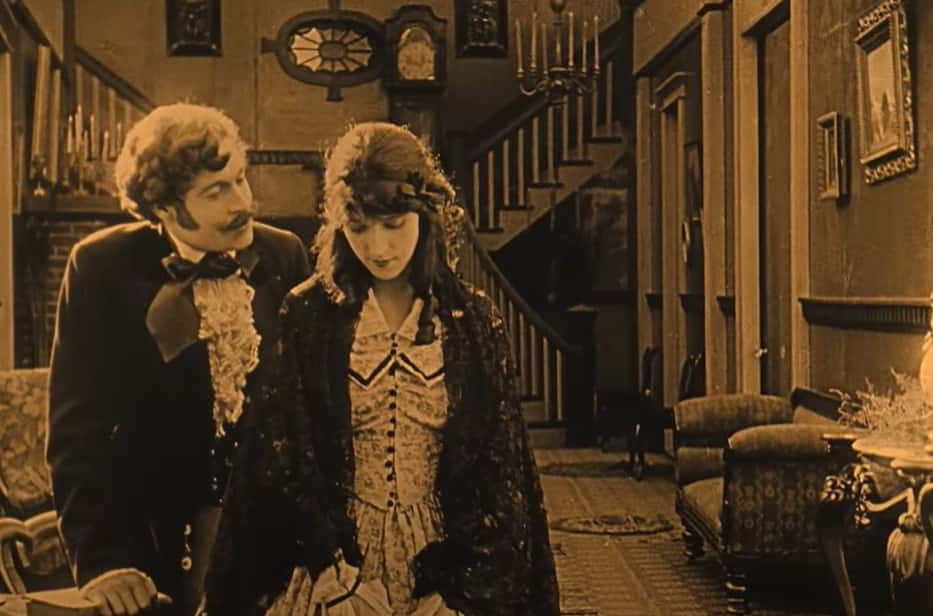 The Birth of a Nation (1915), David W. Griffith Corp.
The Birth of a Nation (1915), David W. Griffith Corp.
20. She Was Unavailable
Cooper recounted stories where Griffith had made carnal overtures towards her. In her 1973 autobiography, Dark Lady of the Silents, Cooper recalled an instance in Chicago where Griffith sent her a suggestive telegram and invited her to his hotel room. Perhaps avoiding these romantic hints, Cooper claimed not to be able to get ahold of him.
But that wasn’t the most egregious thing that Griffith did.
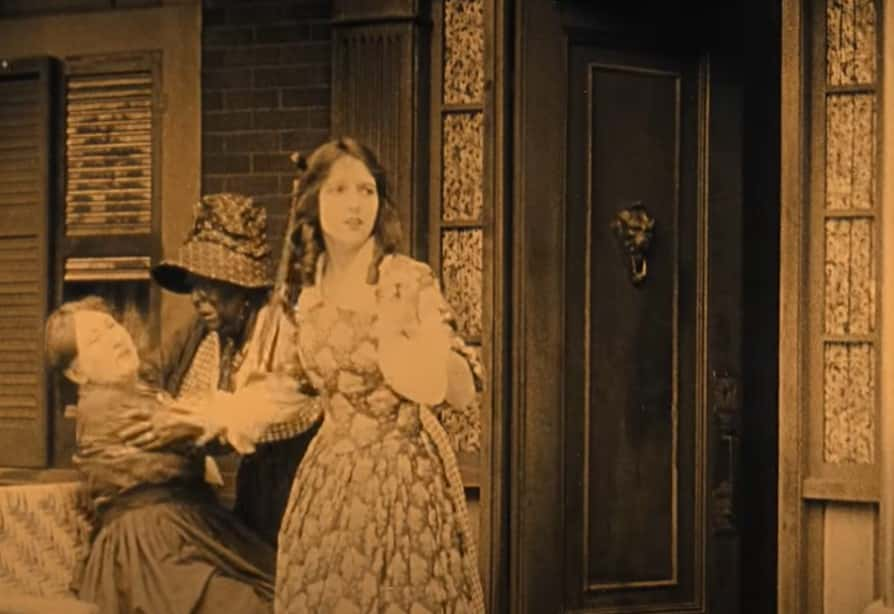 The Birth of a Nation (1915), David W. Griffith Corp.
The Birth of a Nation (1915), David W. Griffith Corp.
21. She Fended Off A Powerful Attacker
In her autobiography, Cooper wrote of a seriously disturbing interaction with her director. After a long day of filming, Griffith asked if he could drive Cooper home, and she gratefully accepted. She lived to regret it. The moment Cooper closed her eyes to rest, Griffith leaned over and kissed her. As she put it, "I was so startled I pushed him away and he landed on the floor”.
Besides the seriously creepy power dynamics, Griffith didn't stand a chance. After all, someone else had already captured Cooper's heart.
22. She Caught A Rebound
Shortly after she arrived in California, Cooper began dating her The Birth of a Nation co-star Raoul Walsh. Still, they didn't have a fairy tale beginning. Walsh had actually first asked out Cooper's meddling co-star Mae Marsh, and they only began dating as a kind of sloppy seconds situation. Sadly, it gets worse. Much worse.
23. Her Husband Used Her
Soon after they became an item, Cooper's new beau used her for his own ends. He begged her to use her connection with DW Griffith to get the elder statesman make him a director. Begrudgingly, Cooper agreed, and Walsh got exactly what he wanted. But she would learn the hard way that she couldn’t trust Walsh on a film set without her.
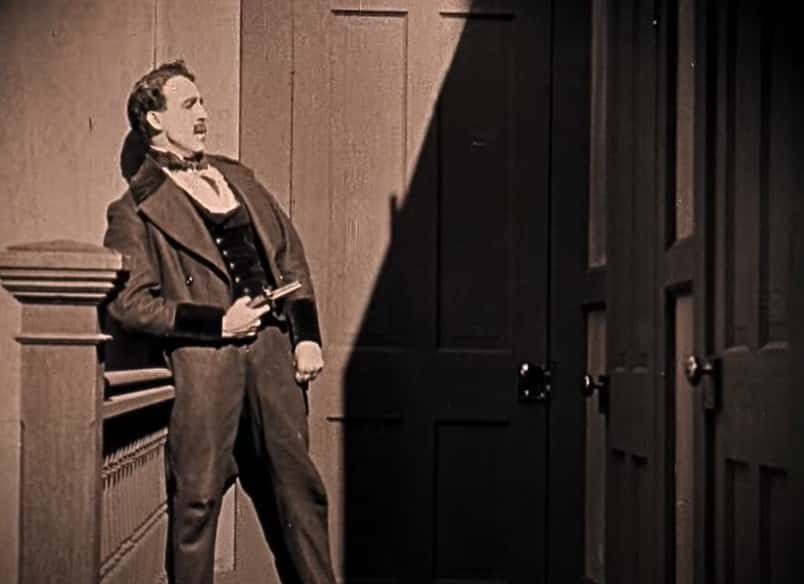 The Birth of a Nation (1915), David W. Griffith Corp.
The Birth of a Nation (1915), David W. Griffith Corp.
24. She Made A Bad Decision
Despite these obvious red flags and some emerging incompatibilities—for example, Cooper dreamed of settling down and starting a family, while Walsh wanted nothing of the kind—the pair made a rash decision and married in 1916, barely a year after they'd first met. If Cooper thought this would force her man to grow up, she was very, very wrong.
25. She Tried Long Distance
By now, Walsh had signed up with Fox Studios to direct films in New York, all while Cooper had to stay in California and finish up her commitments for Griffith's company. The distance took a toll on Cooper, and she began to have dark suspicions. While Walsh had always loved to gamble and carouse, Cooper now believed he was also cheating on her.
Desperate, she made an incredible sacrifice for love. One that didn't work out in her favor.
26. She Gave Up Everything
Unable to handle all the late nights wondering what Walsh was getting up to on the other side of the country, Cooper let her lucrative job with Griffith go so she could move back to New York and focus on being with Walsh full-time. Indeed, she still wanted to simply be a wife and mother and give up acting entirely. Unfortunately, Walsh repaid her loyalty with betrayal.
27. She Drank Acid
In case it needs affirming, Walsh definitely was cheating on Cooper. Her reaction was heartbreaking. One of the first nights he left her alone to spend time with another woman, Cooper downed a bottle of carbolic acid. Fortunately, paramedics pumped her stomach before any permanent physical damage was done.
Except the internal damage was already there—and it began to show in surprising ways.
28. Her Husband Overshadowed Her
Walsh continued to trade on his wife’s good name in Hollywood, asking her to speak with studio executives to secure major films for his career. This had a strange and unpleasant effect: Instead of people knowing her for her own work, Cooper realized they knew her better as "the Director's wife," a title that chafed her even though she had never cared much for stardom.
Not that her discomfort stopped Walsh from taking even more liberties.
29. She Spied On Her Husband
Cooper eventually came out of her early retirement and began acting again—but only on Raoul Walsh's terms. After all, he still needed her starpower to pump up his own career. Then, not content with merely leeching off Cooper, Walsh also actively hurt her professional life. At one point, he convinced her to sign a contract that gave him top billing on the films he made with her.
I wish I could say the manipulation stopped there.
30. She Had A Deadly Doppelganger
Soon, Walsh was nudging Cooper to take the lead role in his new film based on the scandalous life and trial of Chilean socialite Bianca de Saulles, who had fatally shot her husband earlier that year. Allegedly, Cooper bore such a strong resemblance to de Saulles that people on the streets often mistook her for the errant heiress...but that didn't mean Cooper was up for the part.
Just before filming was due to start, Cooper fell ill and had to decline the role. The next events were nothing short of infuriating.
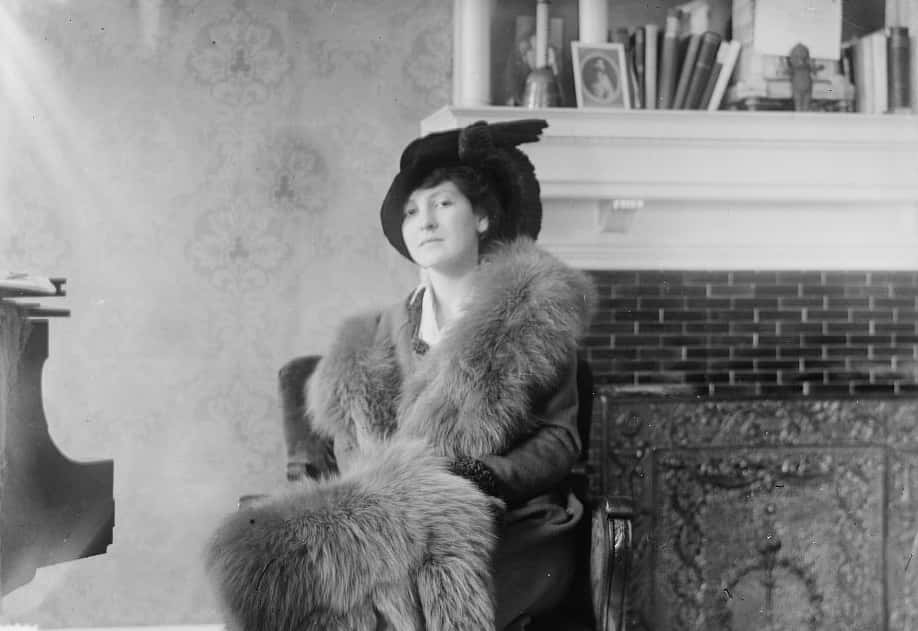 Flickr, The Library of Congress
Flickr, The Library of Congress
31. The Studio Forced Her To Work
At first, it seemed like Cooper was going to get the rest and relaxation she so desperately needed. But when the studio—and Walsh—realized her replacement was terrible, they coerced her into accepting the role. To add insult to injury, they tried to insist on crediting de Saulles instead of Cooper for the film, all to trick audiences into thinking de Saulles was playing herself.
Thankfully, Cooper put her foot down for this and refused. But it was one of her last victories.
32. Her Passion Project Flopped
Between 1917 and 1920, Walsh managed to convince Cooper to continue appearing in films that he directed, all while he continued to gamble and cheat. Even when Cooper tried to retake control of her name and career, it backfired on her. When she took over creative control of 1920’s The Oath and made it her passion project, the film was a critical and commercial disaster.
In an ironic twist, it was one of Walsh’s only films to lose money. The good times were coming to an end.
33. She Sustained An Injury
In 1922, Cooper and Walsh were filming Kindred of the Dust when the set turned into a nightmare. First, while shooting, Cooper accidentally looked into a stage light and caused permanent damage to her vision. But, blinded or not, Cooper could tell her husband was even more distant than usual on this film. The cold, hard truth came out eventually.
34. Her Husband Admitted His Secret
Following Kindred of the Dust, Cooper's husband made a gut-wrenching confession. He told her he simply didn't love her anymore, devastating Cooper in the process. Following that bombshell, the couple finally got the courage to separate from each other, although they didn't go through with a full divorce. By the end, Cooper probably wished she had.
35. She Was A Bad Actor
With her first tase of freedom, Cooper tried her hand at stage acting for the first time. It was a complete disaster. Without the camera as a buffer or Griffith as a director, Cooper’s lack of acting training became apparent. Critics and audiences panned her performance, and she never returned to the stage again. These desperate times soon called for more desperate measures.
36. She Hit A Rough Patch
Once again, Cooper found herself looking to the film studios to repair her career. She took a major pay cut to appear in the ironically-titled 1923 film Is Money Everything? with a tiny studio. In the end, it was hardly worth it. Cooper gave another spotty performance and the film received negative reviews. Backed into a corner, she felt there was only one thing she could do.
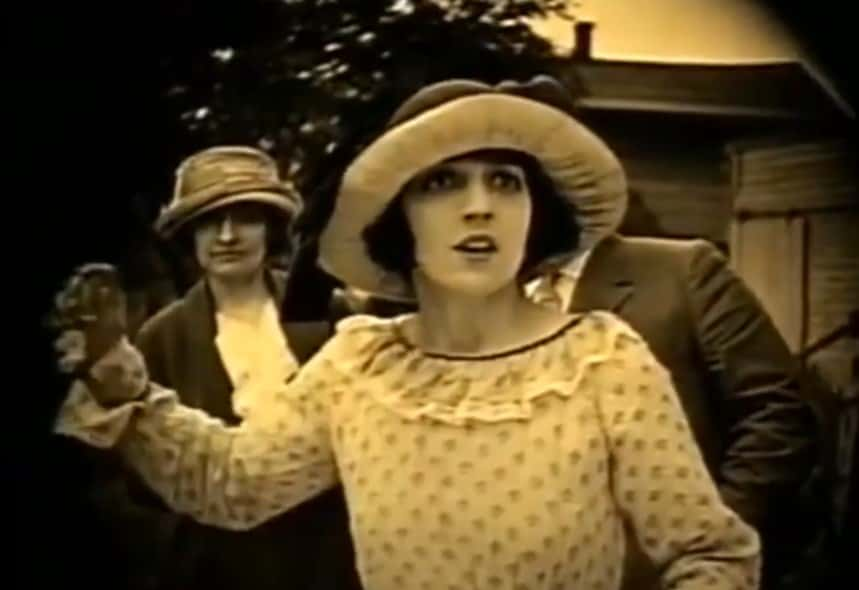 Is Money Everything?(1923), D.M. Film Corporation
Is Money Everything?(1923), D.M. Film Corporation
37. She Made A Comeback
In 1925, Cooper made an infamous decision. Perhaps seeking out familiarity, she reconciled with her no-good husband Walsh, and soon appeared in the aptly-named film The Girl Who Came Back. Frustratingly enough, although Walsh hadn't been in the director's chair, just being back with him seemed to cure her losing streak.
The newspapers and tabloids lauded her performance and said that it was just the comeback that she needed. Even so, it would be one of the shortest comebacks in Hollywood history.
38. She Was In The Same Situation
Despite their reconciliation, Cooper still believed that Walsh was cheating on her...and he was, of course, but now there was a twist. He too began accusing Cooper of being unfaithful. Still, this deflection did nothing to distract Cooper from finding out the women he was seeing behind her back. She just didn't like the answers.
39. Her Husband Slept With A Barrymore
Cooper accused Walsh of carrying on an affair with the actress Ethel Barrymore, part of the prominent Barrymore acting dynasty. And she had good reason to believe it, too. After all, Walsh had grown up alongside the Barrymore family in New York. That he was cheating was bad enough, but this particular affair was too public for Cooper’s liking...and she took matters into her own hands.
40. She Picked A Fight With A Barrymore
Beside herself with rage and grief, Cooper confronted Ethel Barrymore about the affair. She also managed to get in a cutting insult. In Dark Lady of the Silents, Cooper wrote cattily, “Girls pursued Raoul with desperation. But I couldn’t understand why Ethel Barrymore, who was old enough to be his mother, would want to throw herself at my husband”.
Cooper may have been baffled, but she knew just what to do next.
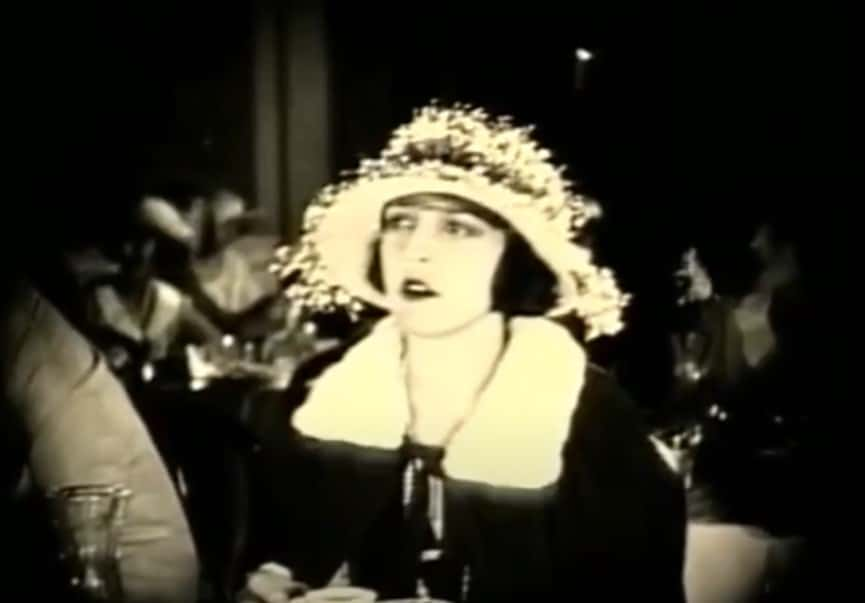 Is Money Everything?(1923), D.M. Film Corporation
Is Money Everything?(1923), D.M. Film Corporation
41. She Tried To Save Her Marriage
Fed up with his shenanigans and affairs, Cooper threatened to divorce Walsh. Only, she couldn't get away that easily. Walsh begged Cooper for forgiveness, promising to change his ways. He was apparently so convincing, Cooper agreed to stay in the marriage against her better judgement. She must have known that it couldn’t last.
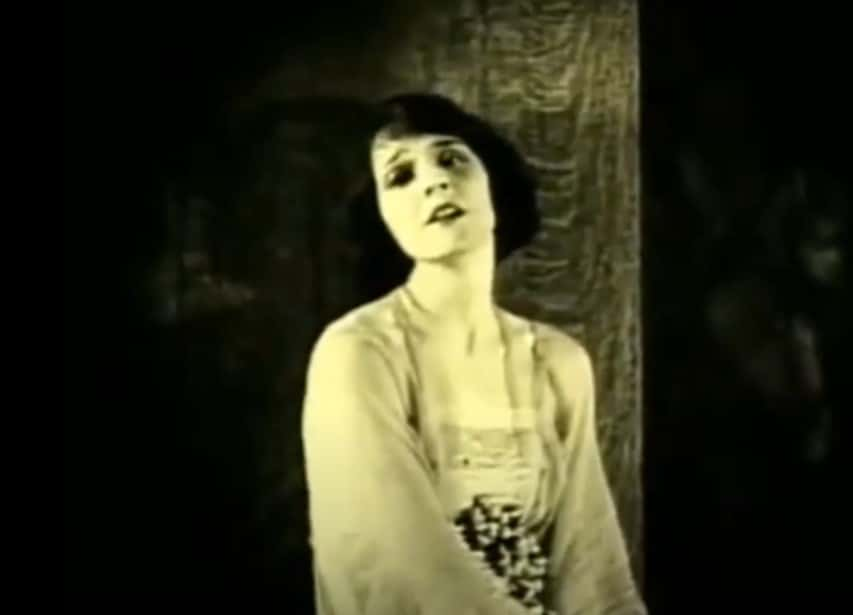 Is Money Everything?(1923), D.M. Film Corporation
Is Money Everything?(1923), D.M. Film Corporation
42. Her Husband Was Polyamorous
In addition to his many other affairs, it seems that Walsh was carrying on a serious relationship with a much-younger woman. Cooper discovered that he was dating—and maybe even engaged to—a much younger society girl. Terrible as that was, believe it or not, that wasn’t what convinced Cooper that the marriage was, finally, over. That took something much worse.
43. Her Friend Double-Crossed Her
Cooper learned that Walsh had been carrying on yet another affair right under her nose. This time, it was ten times worse. Apparently, Walsh had fallen in love with one of Cooper’s best friends, fellow actress Lorraine Miller. Cooper finally, FINALLY had enough and actually filed for divorce. And this time, she was out for blood.
44. She Wanted To Ruin Her Husband's Career
Cooper threatened to cite infidelity as the grounds for her divorce to Walsh, which was a huge threat at the time. Under the strict morality clauses of the day, infidelity could cost someone a lot more than their marriage. Indeed, if Cooper went through with it, there was a good chance Walsh would lose his contracts with studios. But Walsh had a secret weapon.
45. One Word Could Have Destroyed Her Husband
In a panic, William Fox of the Fox Film Corporation rushed over to Cooper. Walsh was one of his most profitable directors and he couldn’t afford to lose him, so he begged Cooper not to cite infidelity as the cause of their divorce. Cooper agreed and only put “irreconcilable differences”, thus sparing Walsh’s career. But she didn’t do it for free.
46. She Drove A Tough Bargain
Cooper was well and truly done with Raoul Walsh, and she made a brutal request. If he wanted her to save his career, he had to pay her $500 a week—an enormous sum back then—for the rest of her life. Then when Walsh (predictably) reneged on his end of the bargain, Cooper took him to court. This all set off a wild reaction in Hollywood.
47. Her Friends Celebrated Her Divorce
For weeks, the divorce was all that the tabloids could talk about, and it split Tinseltown's A-list stars in half, with some supporting Cooper and others supporting Walsh. On the one hand, Gloria Swanson threw a divorce party for Walsh, while director Erich von Stroheim did the same for Cooper. Still, nothing could cushion the blow that was coming.
48. She Suffered One Final Insult
Cooper had finally escaped Walsh, but it had to hurt when she heard his latest relationship developments. Immediately after their divorce was finalized, Walsh married Cooper's (ex) friend Lorraine Miller. Unsurprisingly, that was about all Cooper could take. She soon moved back to New York permanently and never made another movie again. She also never remarried.
In her spare time, she now wrote novels and plays, none of which ever saw the light of day. Obscurity suited her well...until Hollywood came knocking once more.
49. She Could Never Get Any Peace And Quiet
Try as she might, Cooper could never really escape the spotlight. In 1969, someone from the Library of Congress called her, surprised to learn that she was still alive. All of a sudden, film historians and universities began calling her with requests for appearances to reminisce on her legacy and talk about her days as the Dark Lady of the Silents.
Eventually, she passed in a nursing home in 1976 at the age of 84.
50. She Was Not A Fan Of Charlie Chaplin
Cooper was friends with just about all of Hollywood’s A-list, but she wasn't always loyal to these pals. For example, she was once close friends with Charlie Chaplin, but didn't like being around him when he started having some relationship issues of his own. In her autobiography, she called him “one of the most depressing people” that she had ever met.
51. She Was Unapologetic
Cooper was unable to attend the premiere of The Birth of a Nation in Los Angeles when it first came out, but don't take that to mean she was ashamed of the controversial film; she was actually just too sick to go. Years later, Cooper did acknowledge some of the problematic issues in the film around race, but she never denounced it.

